Department Profile
Department Establishment:
- Anc: 1969 – 1970
- B.Sc Physics : 1984 – 1985
- M.Sc Physics : 2004 – 2005
- M.Phil Physics : 2014 – 2015
Vision:
To stimulate the interest of the students in Physics and lay a strong foundation in the subjects, to motivate them towards research and render them competent and socially committed.
Mission:
- To design a relevant curriculum to suit the growing trends of technology.
- To train the students to apply laboratory skills.
- To develop the potentials of the students for independent thinking and creativity through project work.
- To promote collaborative research culture.
| Name of the Programme | B.Sc Physics |
| Duration | 3 Years |
| Intake | 40 |
| Eligibility | For admission to Under Graduate Programme in Physics, a candidate Passed the Higher Secondary Examination of Tamil Nadu or an examination (like the CBSE) recognized by the universities as equivalent there to, who have opted Group one in Plus Two with the following subjects in part III Physics (100), Mathematics (100), Chemistry (100),Biology/Computer Science (100). |
| Name of the Programme | M.Sc Physics |
| Duration | 2 years |
| Intake | 25 |
| Eligibility | For admission to M.Sc Physics, a candidate must have passed a 3 years degree course in Physics (B.Sc Physics) (under the 10+2+3 pattern) recognized by the university as equivalent there to. |
PLOs -PSOs- PEOs
SYLLABUS 2020
Programme Learning Outcomes (PLO)
PLO1: Disciplinary knowledge
Apply the knowledge of Arts, Science and Humanities to address fundamental and complex questions appropriate to their programmes.
PLO2: Critical thinking, Problem solving and Analytical reasoning
Make use of appropriate knowledge and skills to identify, formulate, analyze and solve problems in order to reach substantiated conclusions.
PLO3: Research related skills and scientific reasoning
Critically analyze research processes, products and practices with a view of strategic use of data in their field.
PLO4: Communication skills and Digital literacy
Demonstrate skills in oral and written communication and make use of ICT in various learning ambience.
PLO5: Team work and Leadership quality
Interact productively with people from diverse backgrounds as both leaders/mentors and team members with integrity and professionalism.
PLO6: Multicultural competence with Moral and ethical awareness
Defend the society against gender and environmental issues with moral and ethical awareness.
PLO7: Self-directed and Life-long learning
Formulate their own educational needs in a changing world in ways sufficient to maintain their competence and to allow them to contribute to the advancement of knowledge.
B.SC PHYSICS
Programme Educational Objectives (PEOs)
The Graduates will be prepared to
PEO1: pursue higher studies in related fields including teaching and management and take up careers as educationalist, researcher, technical specialist
PEO2: explore physical systems through theoretical models, experiments and communicate findings of the scientific work with moral responsibility, social concern and eco-consciousness
PEO3: become self- employed in technical fields and consultancy services.
Programme Specific Outcomes (PSO)
By the completion of the B.Sc Physics programme, the learners will be able to
PSO1: elucidate and demonstrate the fundamental principles and concepts of physics which include properties of matter, sound, optics, mechanics, microprocessor, thermodynamics, digital electronics, quantum mechanics etc.
PSO2: explore systematically the physical phenomenon by solving problems and performing projects and justify their report scientifically
PSO3: communicate physics concepts, processes and results both in verbal and written form effectively using ICT tools.
M.SC PHYSICS
Programme Educational Objectives (PEOs)
The Graduates will be prepared to
PEO1: become competent professional in industry, consultancy, education, research and public administration.
PEO2: excel as Junior Research Fellow, research associates, analyze complex problems and experimental data in physics imbibed by ethical, moral and social values leading to highly cultured and civilized physicist.
PEO3: become tutors, tech or digital entrepreneur and undertake projects.
Programme Specific Outcomes (PSO)
By the completion of the PG Physics programme, the learners will be able to
PSO1: acquire knowledge in the areas of Mathematical Physics, electromagnetism, classical mechanics, statistical mechanics, quantum mechanics, nuclear and particle physics etc.
PSO2: Perform general Physics and research oriented experiments with appropriate
analysis for proper interpretation of results; to undertake projects and present the research findings.
PSO3: Independently carry out research to solve real world problems and present a notable scientific report.
SYLLABUS 2020
PO:
PO1: Disciplinary knowledge
Apply the knowledge of Arts, Science and Humanities to address fundamental and complex questions appropriate to their programmes.
PO2: Critical thinking, Problem solving and Analytical reasoning
Make use of appropriate knowledge and skills to identify, formulate, analyze and solve problems in order to reach substantiated conclusions.
PO3: Research related skills and scientific reasoning
Critically analyze research processes, products and practices with a view of strategic use of data in their field.
PO4: Communication skills and Digital literacy
Demonstrate skills in oral and written communication and make use of ICT in various learning ambience.
PO5: Team work and Leadership quality
Interact productively with people from diverse backgrounds as both leaders/mentors and team members with integrity and professionalism.
PO6: Multicultural competence with Moral and ethical awareness
Defend the society against gender and environmental issues with moral and ethical awareness.
PO7: Self-directed and Life-long learning
Formulate their own educational needs in a changing world in ways sufficient to maintain their competence and to allow them to contribute to the advancement of
knowledge.
Programme Specific Outcomes (PSO):
By the Completion of B.Sc Physics programme, the learners will be able to
PSO1. elucidate and demonstrate the fundamental principles and concepts of physics which include optics, mechanism, electricity, electromagnetism, thermodynamics, digital electronics, wave mechanics etc.
PSO2. collect, analyze data critically and interpret the results to achieve valid conclusions.
PSO3. explore systematically the physical phenomenon by solving problems and performing projects and justify their report scientifically.
PSO4. communicate physics concepts, processes and results both in verbal and written form effectively using ICT tools.
PSO5. plan with team members, execute experiments, investigate the experimental results and prepare the documentation for the findings.
PSO6. project the true results of scientific findings and conscientious attempt to describe the physical phenomena accurately, without bias and any hyperbole.
PSO7. adapt to changes in technology by means of self-directed and lifelong learning in various fields like biopolymers, thin films, crystal growth, nanotechnology, fuel cell etc.
PEO:
The Graduates will
PEO1. pursue higher studies in related fields including teaching and management and take up careers as educationalist, researcher, technical specialist.
PEO2. explore physical systems through theoretical models, experiments and communicate findings of the scientific work with moral responsibility, social concern and eco-consciousness.
PEO3. become self- employed in technical fields and consultancy services.
PG Programme
PO:
PO1: Disciplinary knowledge
Apply the knowledge of Arts, Science and Humanities to address fundamental and complex questions appropriate to their programmes.
PO2: Critical thinking, Problem solving and Analytical reasoning
Make use of appropriate knowledge and skills to identify, formulate, analyze and solve problems in order to reach substantiated conclusions.
PO3: Research related skills and scientific reasoning
Critically analyze research processes, products and practices with a view of strategic use of data in their field.
PO4: Communication skills and Digital literacy
Demonstrate skills in oral and written communication and make use of ICT in various learning ambience.
PO5: Team work and Leadership quality
Interact productively with people from diverse backgrounds as both leaders/mentors and team members with integrity and professionalism.
PO6: Multicultural competence with Moral and ethical awareness
Defend the society against gender and environmental issues with moral and ethical awareness.
PO7: Self-directed and Life-long learning
Formulate their own educational needs in a changing world in ways sufficient to maintain their competence and to allow them to contribute to the advancement of knowledge.
PSO:
By the Completion of M.Sc . Physics programme, the learners will be able to
PSO1: apply graduate-level acquaintance in solving problems and proving the theories in various areas of physics like quantum mechanics, solid state physics, molecular spectroscopy, mathematical physics and nano physics.
PSO2: possess scientific attitude, experimental skills, analyse data and interpret the results obtained in physics related problems.
PSO3: implement the physical concepts in a high quality research or creative capstone project under appropriate disciplinary or multidisciplinary context.
PSO4: present there cent trends in physics effectively in seminars, conferences using ICT tools.
PSO5: plan and carry out group discussions, respond to the views of team members and perform complicated projects successfully.
PSO6: follow scientific ethics in all stages of scientific practices such as data collection, transcription, validation of results through replication and publication.
PSO7: realize the impact of science on society and engage in lifelong learning and professional development through self study or higher studies in the diverse fields like material science, electronics, energy devices, eco-friendly materials etc.
PEO:
The graduates will
PEO1: become competent professional in industry, consultancy, education, research and public administration.
PEO2: excel as Junior Research Fellow, research associates, analyse complex problems and experimental data in physics imbibed by ethical, moral and social values leading to highly cultured and civilized physics.
PEO3: become tutors, tech or digital entrepreneur and undertake projects.
SYLLABUS 2023
B.SC PHYSICS
Programme Educational Objectives (PEOs)
The Graduates will be prepared to
PEO1: pursue higher studies in related fields including teaching and management and take up careers as educationalist, researcher, technical specialist
PEO2: explore physical systems through theoretical models, experiments and communicate findings of the scientific work with moral responsibility, social concern and eco-consciousness
PEO3: become self- employed in technical fields and consultancy services.
Programme Learning Outcomes (PLO)
PLO1: Disciplinary knowledge
Apply the knowledge of Arts, Science and Humanities to address fundamental and complex questions appropriate to their programmes.
PLO2: Critical thinking, Problem solving and Analytical reasoning
Make use of appropriate knowledge and skills to identify, formulate, analyze and solve problems in order to reach substantiated conclusions.
PLO3: Research related skills and scientific reasoning
Critically analyze research processes, products and practices with a view of strategic use of data in their field.
PLO4: Communication skills and Digital literacy
Demonstrate skills in oral and written communication and make use of ICT in various learning ambience.
PLO5: Team work and Leadership quality
Interact productively with people from diverse backgrounds as both leaders/mentors and team members with integrity and professionalism.
PLO6: Multicultural competence with Moral and ethical awareness
Defend the society against gender and environmental issues with moral and ethical awareness.
PLO7: Self-directed and Life-long learning
Formulate their own educational needs in a changing world in ways sufficient to maintain their competence and to allow them to contribute to the advancement of knowledge.
Programme Specific Outcomes (PSO)
By the completion of the B.Sc Physics programme, the learners will be able to
PSO1: elucidate and demonstrate the fundamental principles and concepts of physics which include properties of matter, sound, optics, mechanics, microprocessor, thermodynamics, digital electronics, quantum mechanics etc.
PSO2: explore systematically the physical phenomenon by solving problems and performing projects and justify their report scientifically
PSO3: communicate physics concepts, processes and results both in verbal and written form effectively using ICT tools.
M.SC PHYSICS
Programme Educational Objectives (PEOs)
The Graduates will be prepared to
PEO1: become competent professional in industry, consultancy, education, research and public administration.
PEO2: excel as Junior Research Fellow, research associates, analyze complex problems and experimental data in physics imbibed by ethical, moral and social values leading to highly cultured and civilized physicist.
PEO3: become tutors, tech or digital entrepreneur and undertake projects.
Programme Learning Outcomes (PLO)
PLO1: Disciplinary knowledge
Apply the knowledge of Arts, Science and Humanities to address fundamental and complex questions appropriate to their programmes.
PLO2: Critical thinking, Problem solving and Analytical reasoning
Make use of appropriate knowledge and skills to identify, formulate, analyze and solve problems in order to reach substantiated conclusions.
PLO3: Research related skills and scientific reasoning
Critically analyze research processes, products and practices with a view of strategic use of data in their field.
PLO4: Communication skills and Digital literacy
Demonstrate skills in oral and written communication and make use of ICT in various learning ambience.
PLO5: Team work and Leadership quality
Interact productively with people from diverse backgrounds as both leaders/mentors and team members with integrity and professionalism.
PLO6: Multicultural competence with Moral and ethical awareness
Defend the society against gender and environmental issues with moral and ethical awareness.
PLO7: Self-directed and Life-long learning
Formulate their own educational needs in a changing world in ways sufficient to maintain their competence and to allow them to contribute to the advancement of knowledge.
Programme Specific Outcomes (PSO)
By the completion of the PG Physics programme, the learners will be able to
PSO1: acquire knowledge in the areas of Mathematical Physics, electromagnetism, classical mechanics, statistical mechanics, quantum mechanics, nuclear and particle physics etc.
PSO2: Perform general Physics and research oriented experiments with appropriate
analysis for proper interpretation of results; to undertake projects and present the research findings.
PSO3: Independently carry out research to solve real world problems and present a notable scientific report.
Faculty Details
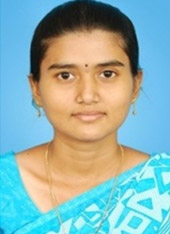
Dr. S. Jayanthi
M.Sc., Ph.D
Assistant Professor & Head
E-Mail jayanthi-phy@sfrcollege.edu.in Area of Specialization Polymer Electrolytes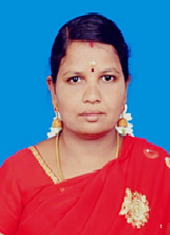
Dr. A. Amutha
M.Sc., Ph.D
Assistant Professor
E-Mail amutha-phy@sfrcollege.edu.in Area of Specialization Nanoparticles, thin films and semiconductor materials
Dr. S. Selvalakshmi
M.Sc., B.Ed., M.Phil., Ph.D
Assistant Professor
E-Mail selvalakshmi-phy@sfrcollege.edu.in Area of Specialization Polymer Electrolytes
Dr. M. Nithya
M.Sc., M.Phil., Ph.D
Assistant Professor
E-Mail nithya-phy@sfrcollege.edu.in Area of Specialization Polymer Electrolytes, Crystal Growth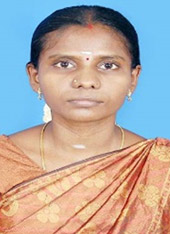
Dr. B. Sivasankari
M.Sc., B.Ed., M.Phil., Ph.D
Assistant Professor
E-Mail sivasankari-phy@sfrcollege.edu.in Area of Specialization Crystal Growth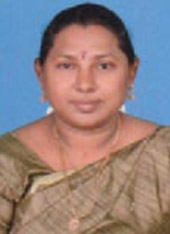
Dr. M. Vigneswari
M.Sc., M.Phil., Ph.D.
Assistant Professor
E-Mail vigneswari-phy@sfrcollege.edu.in Area of Specialization Nanoperovskites, Solar cell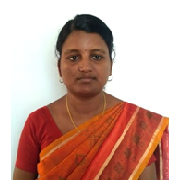
Dr. (Mrs.) C. Amuthambigai
M.Sc., B.Ed., Ph.D., M.Sc (YHE).,
Assistant Professor
E-Mail amuthambigai-phy@sfrcollege.edu.in Area of Specialization Crystal growth, Material Science
Mrs. S.Sumathi
M.Sc., M.Phil.,
Assistant Professor
E-Mail sumathi-phy@sfrcollege.edu.in Area of Specialization Semiconductor-Quantum dotsRemarkable Activities
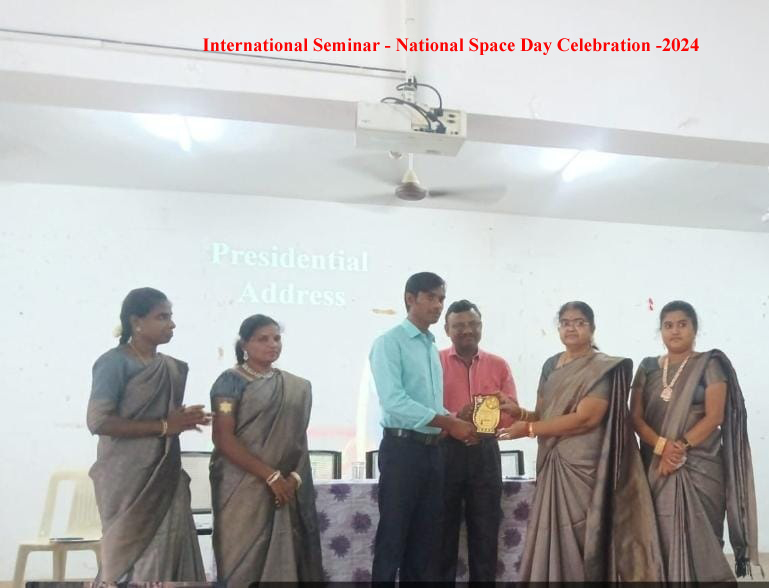
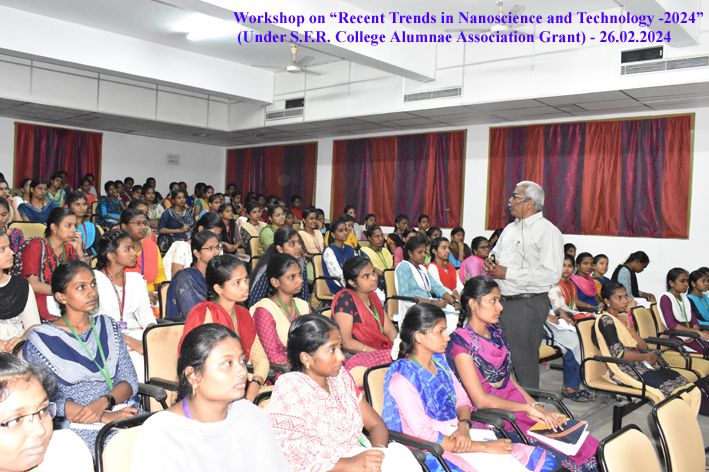
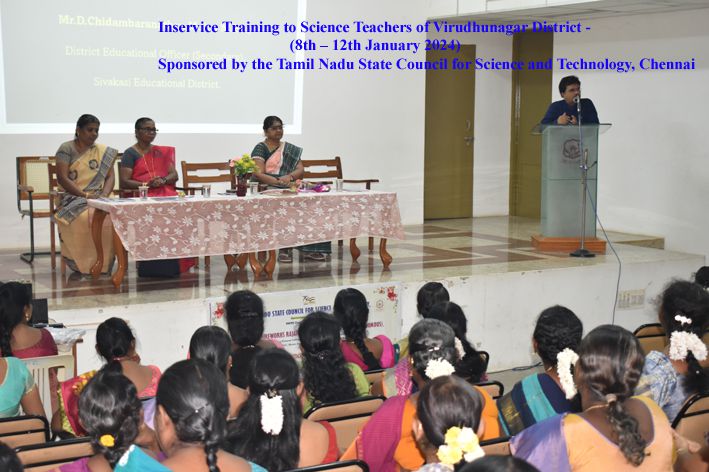
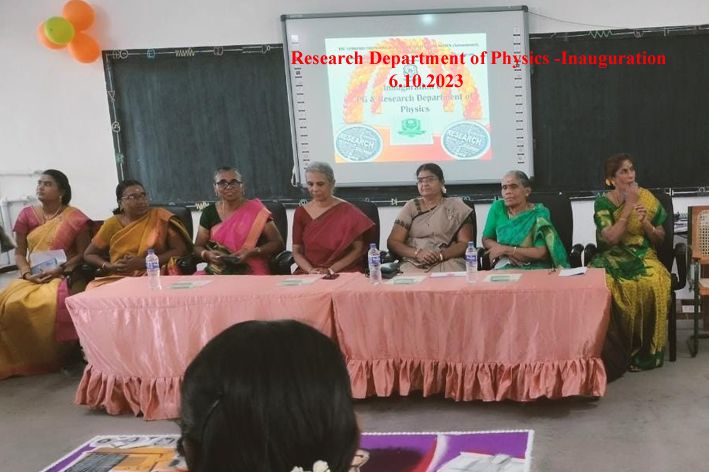
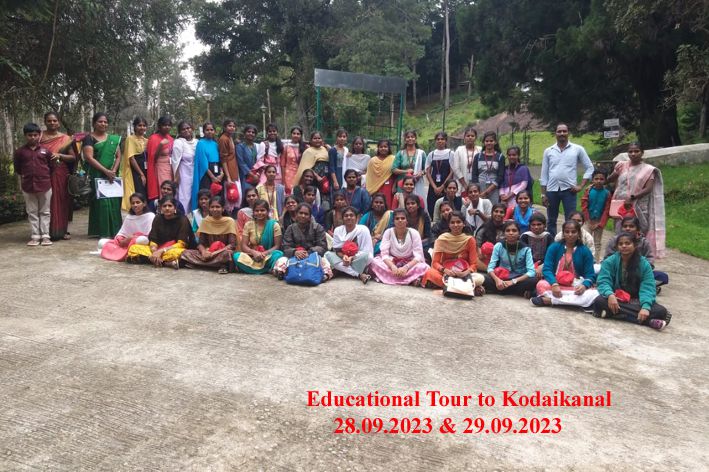
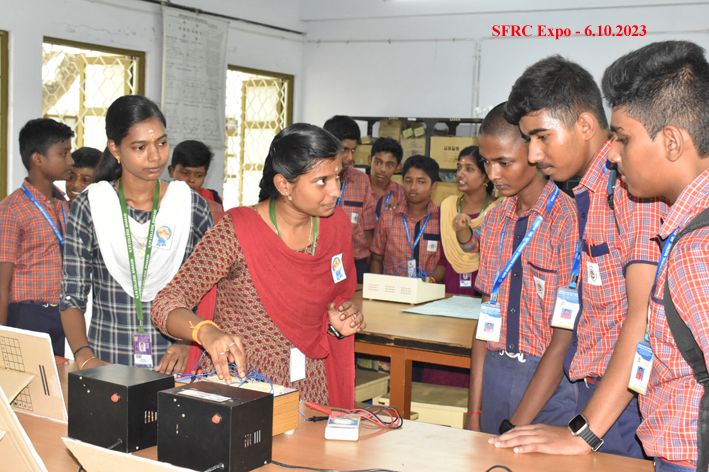
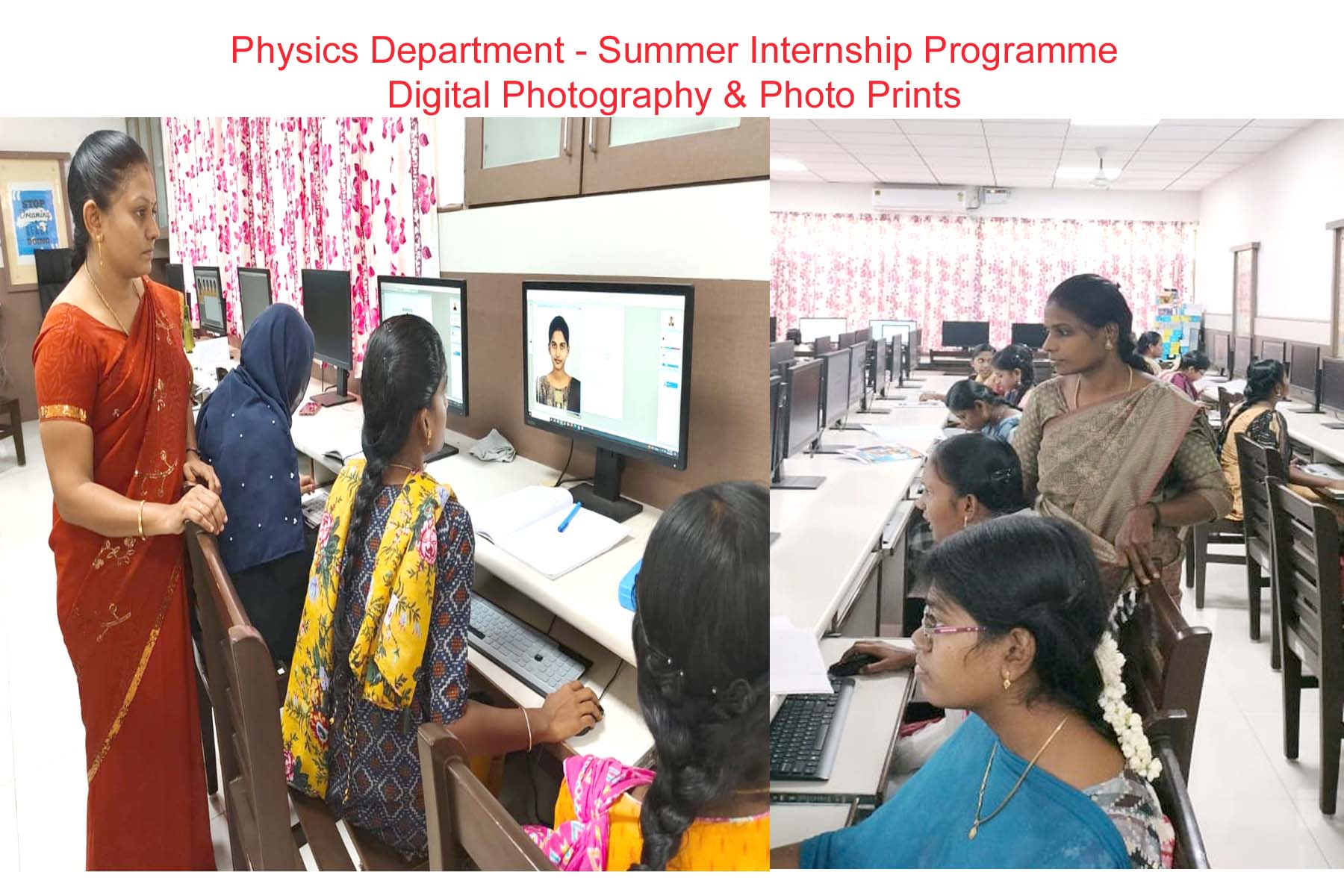
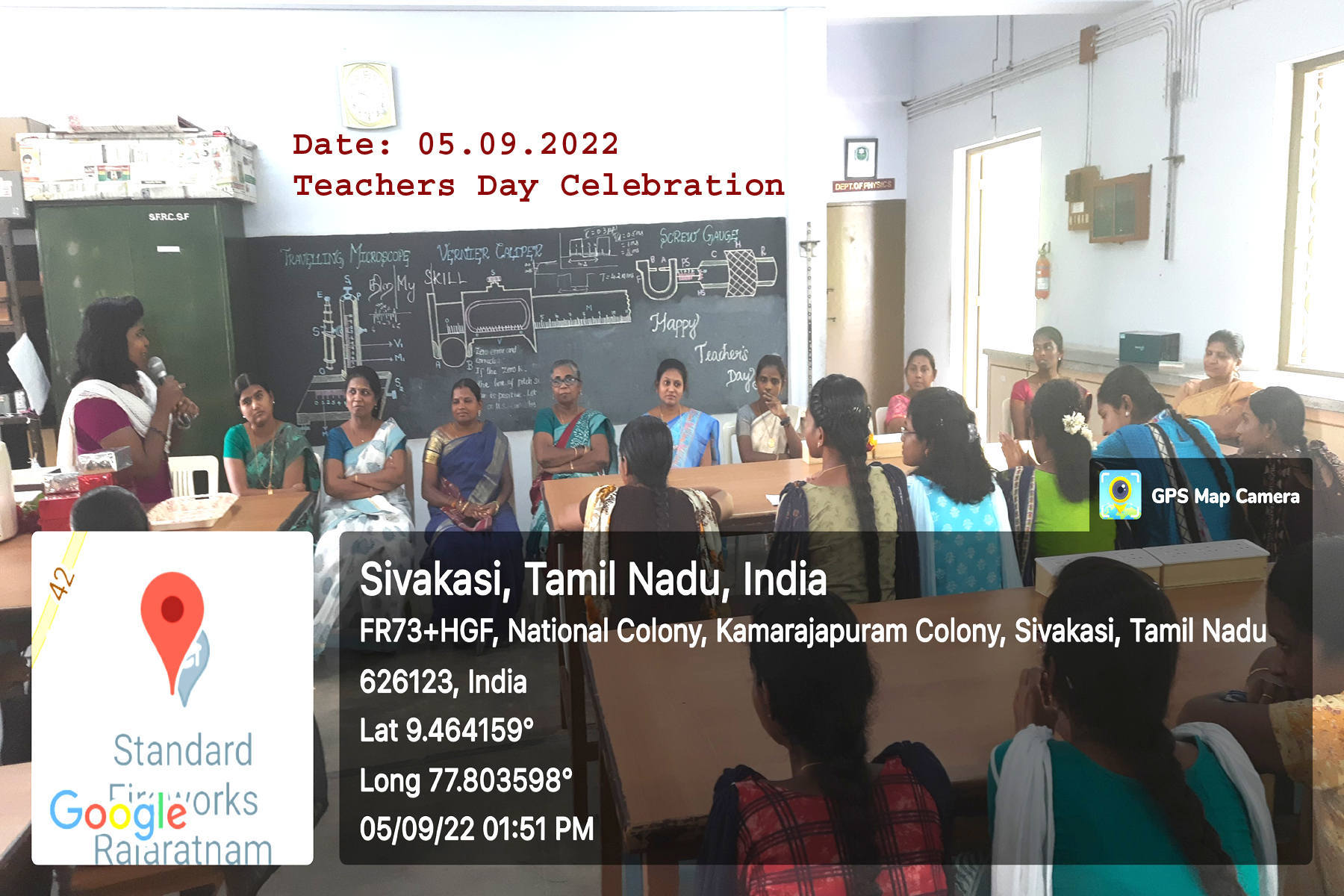
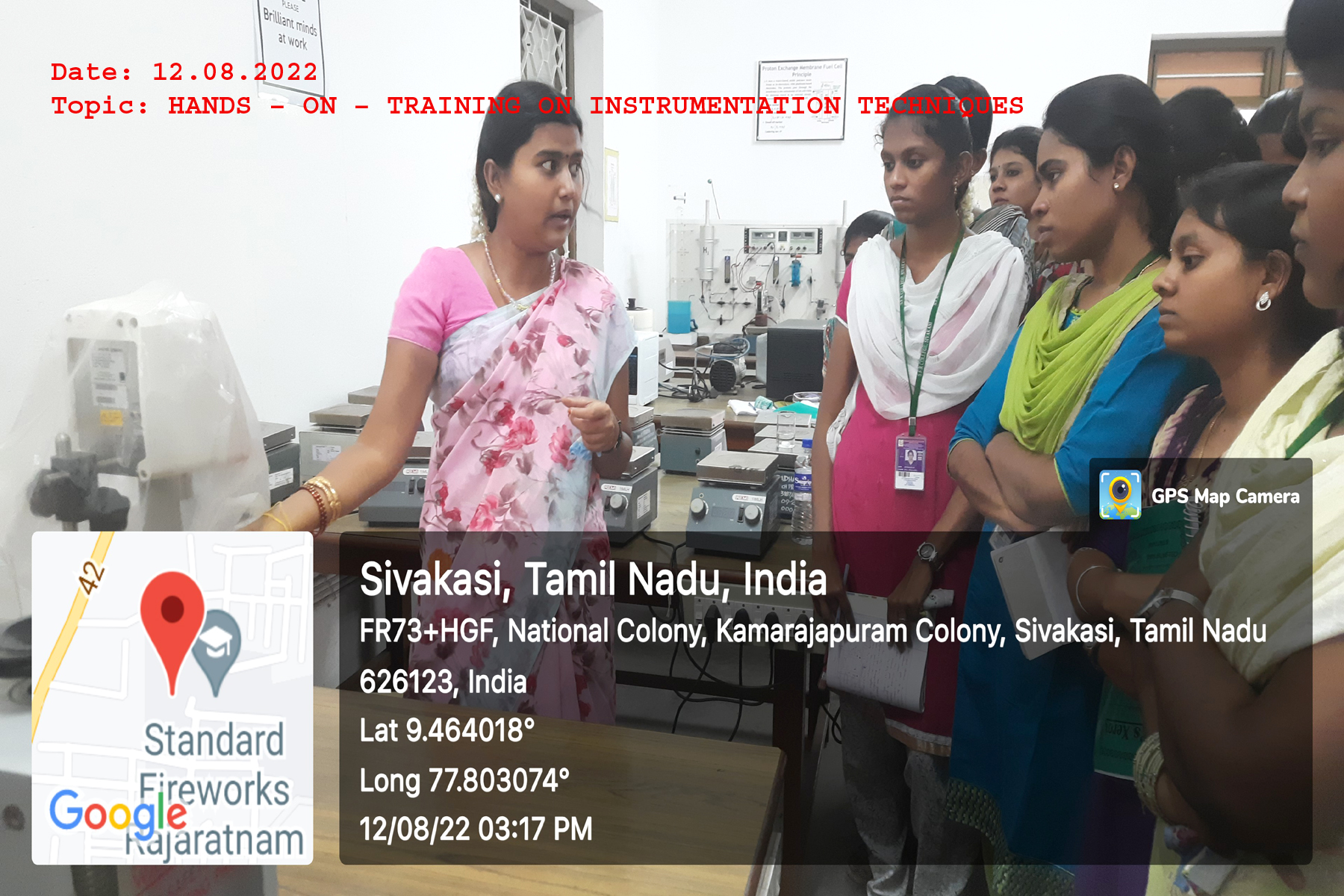
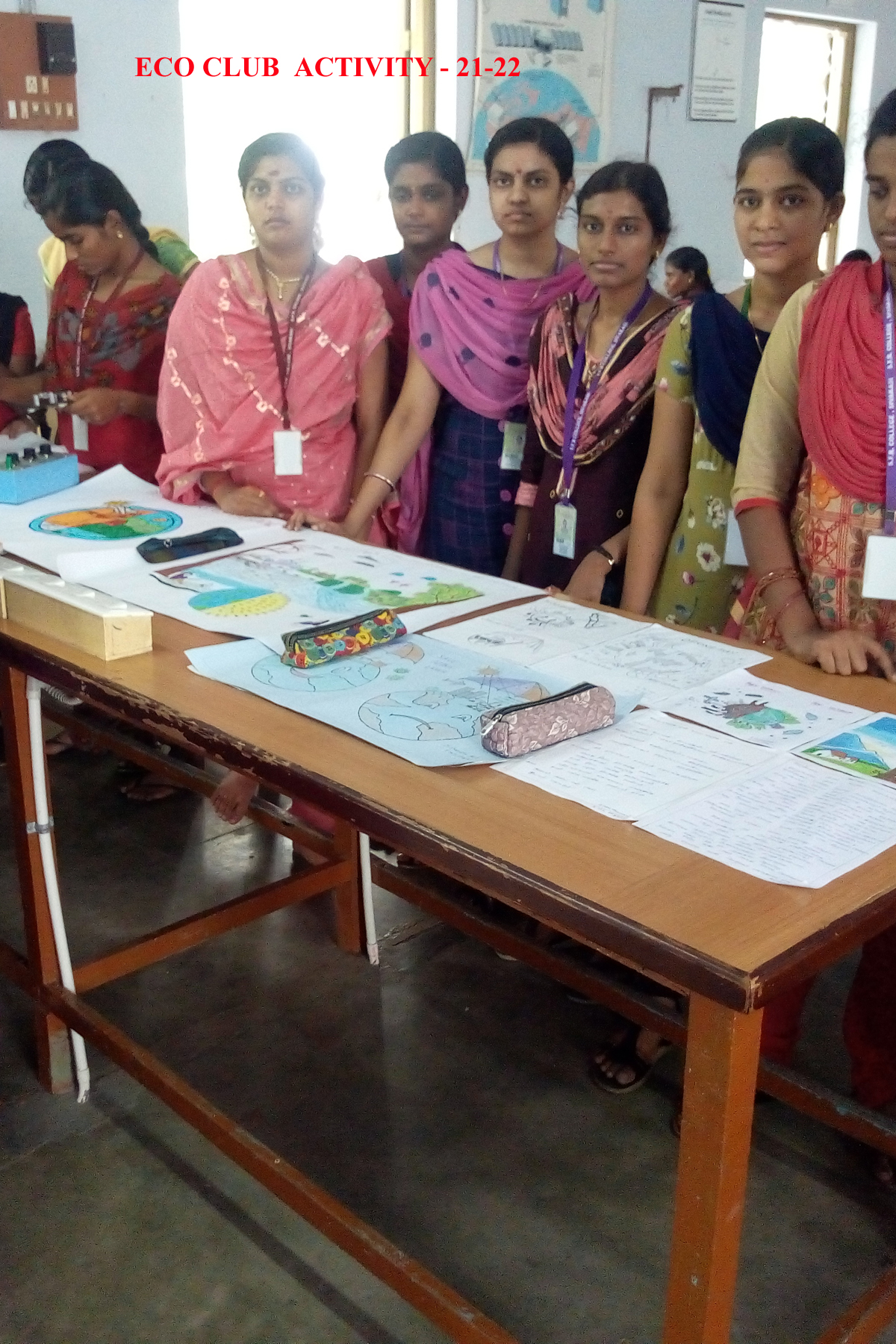
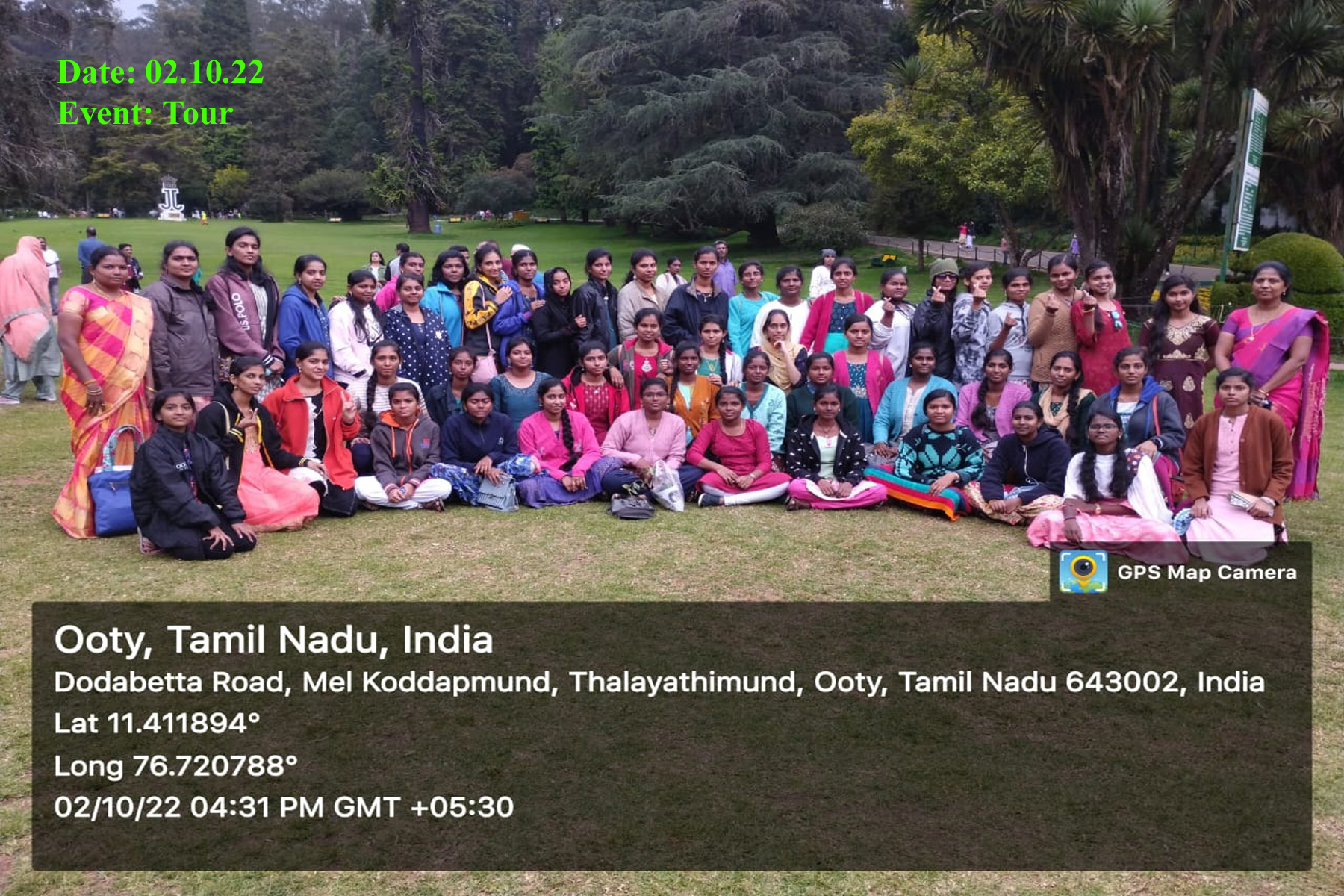
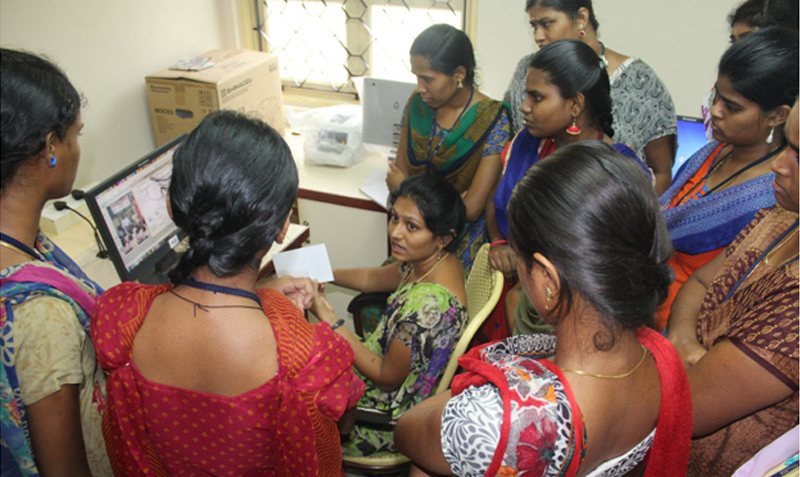
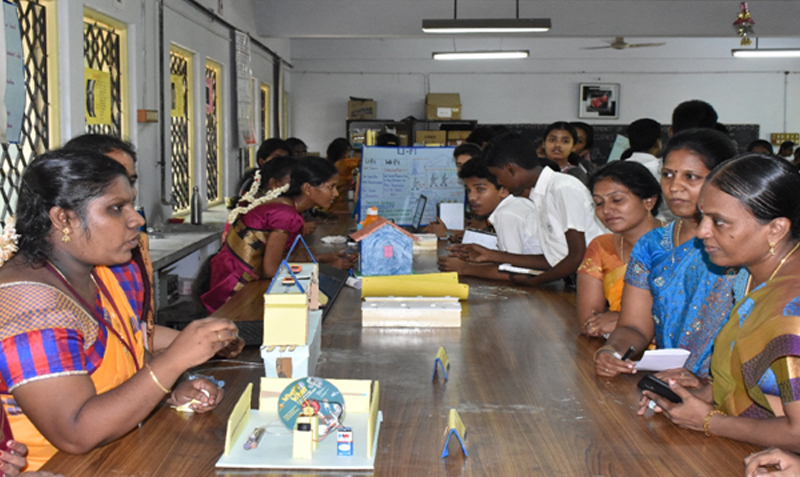
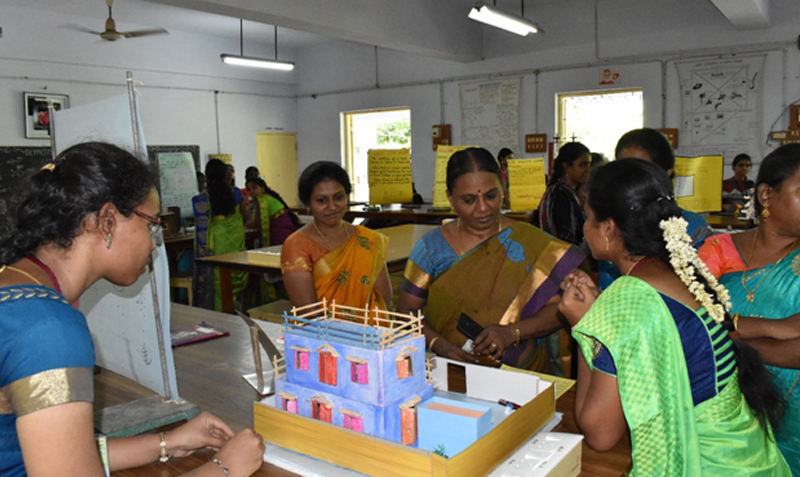
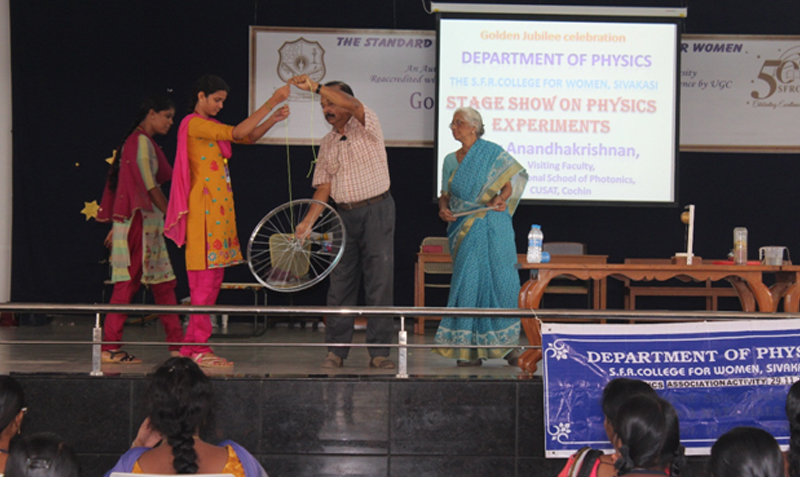
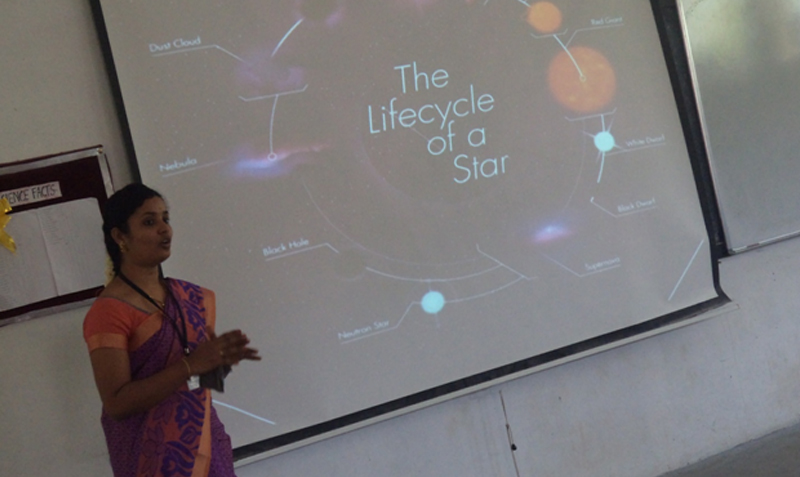
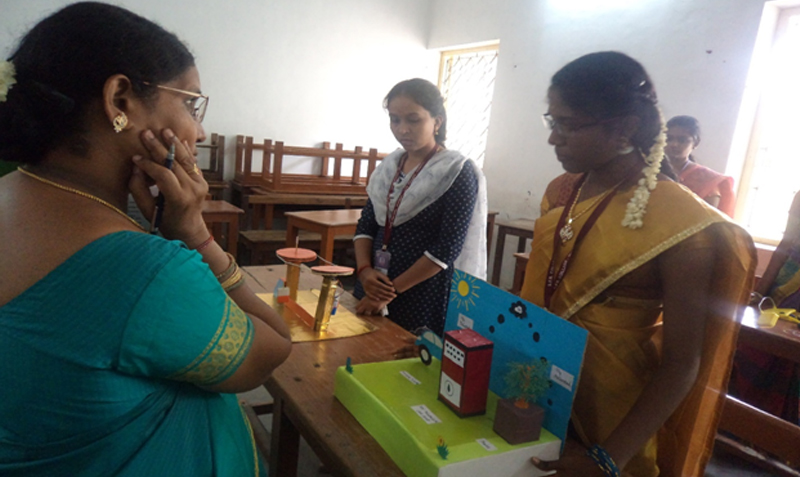
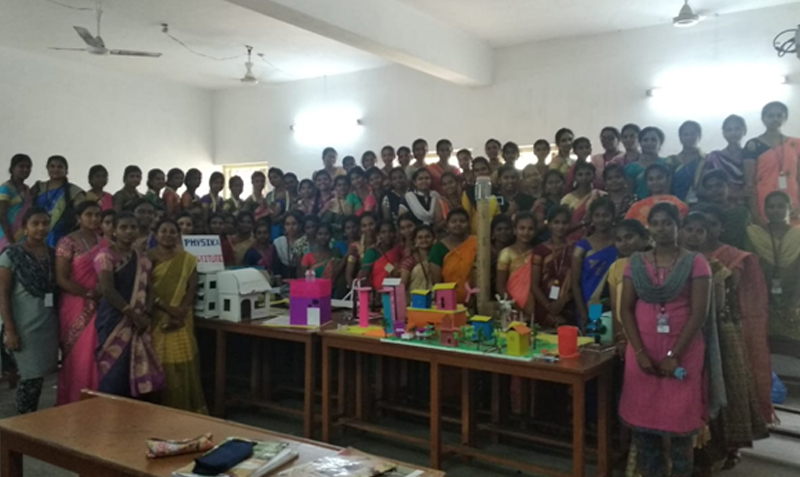
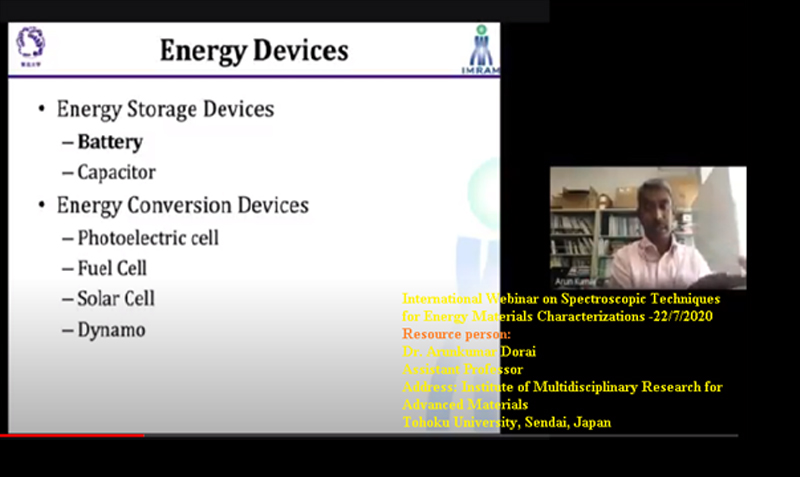
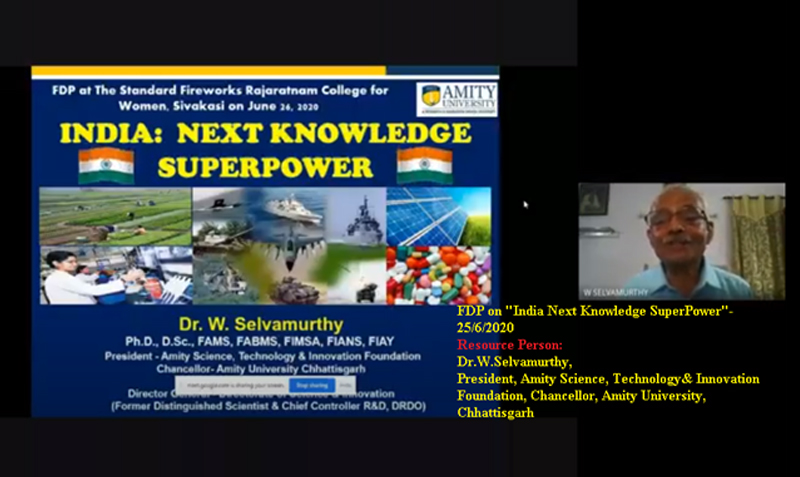
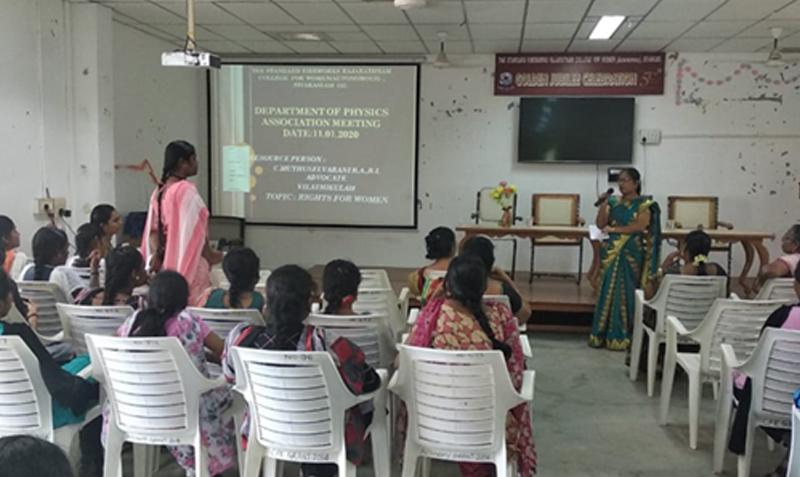
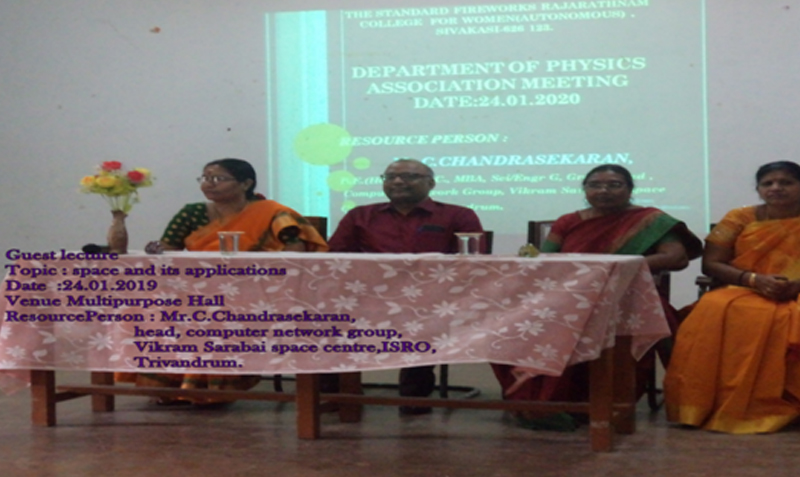
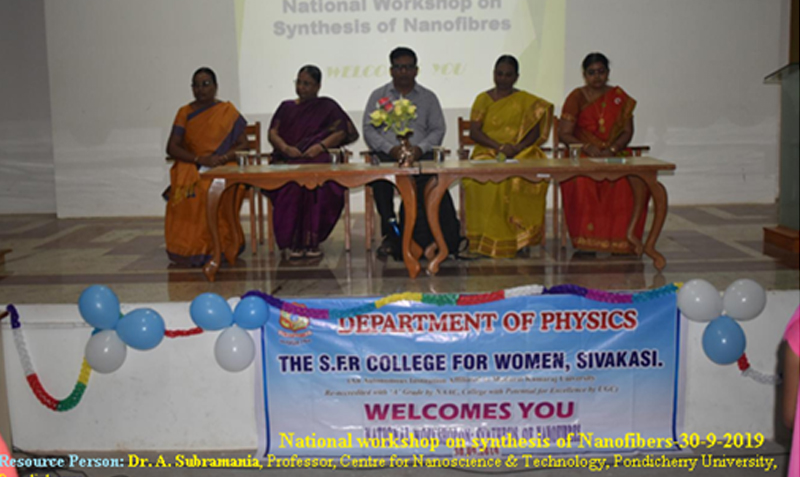
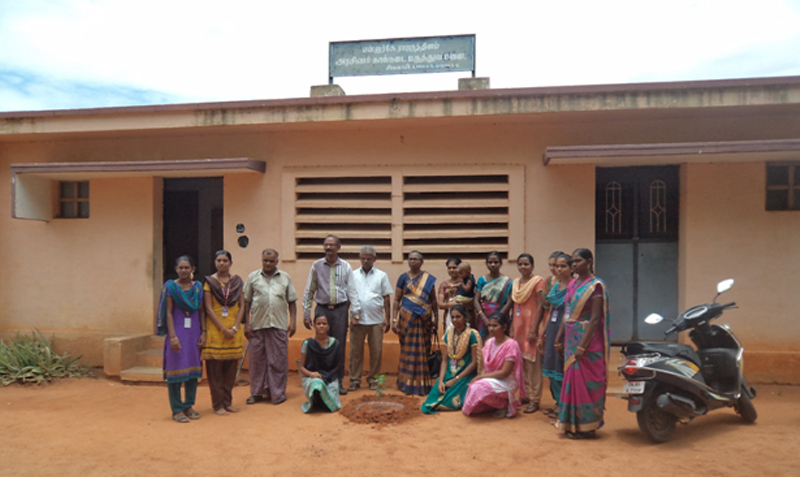
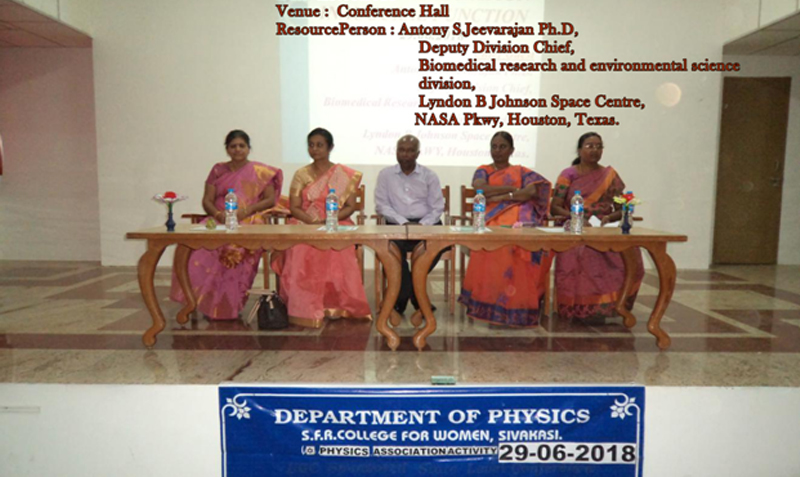
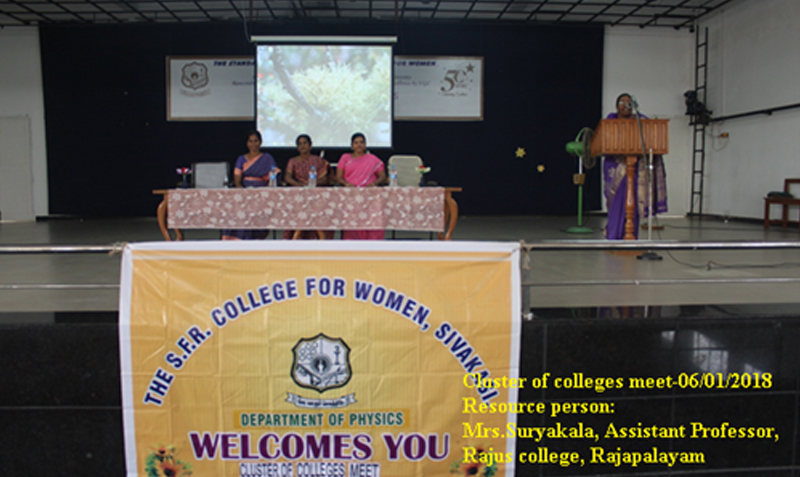
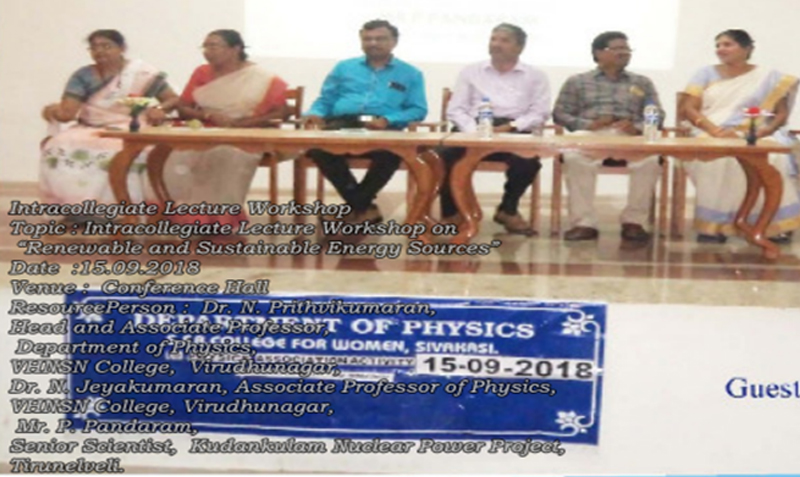
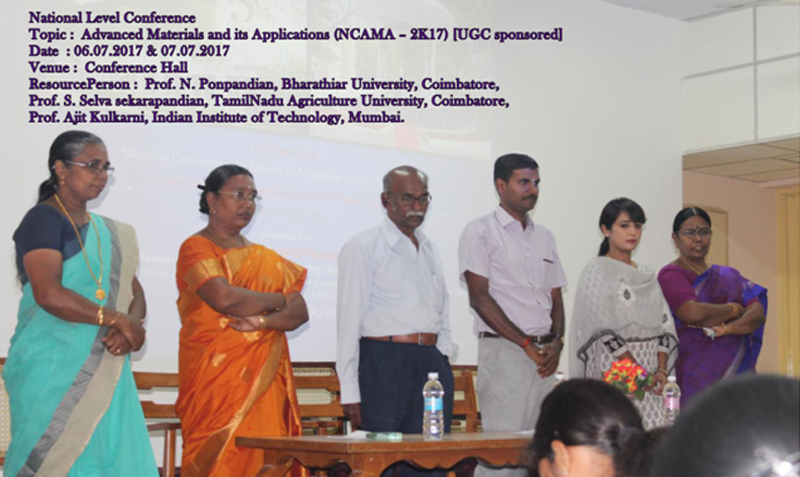
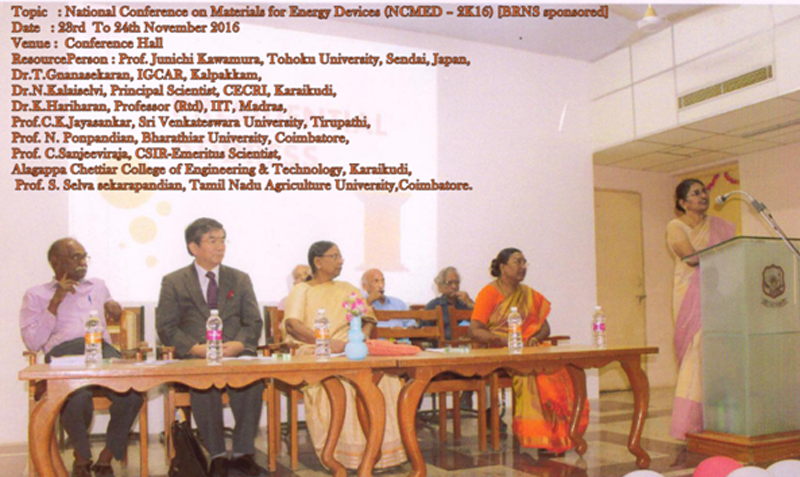
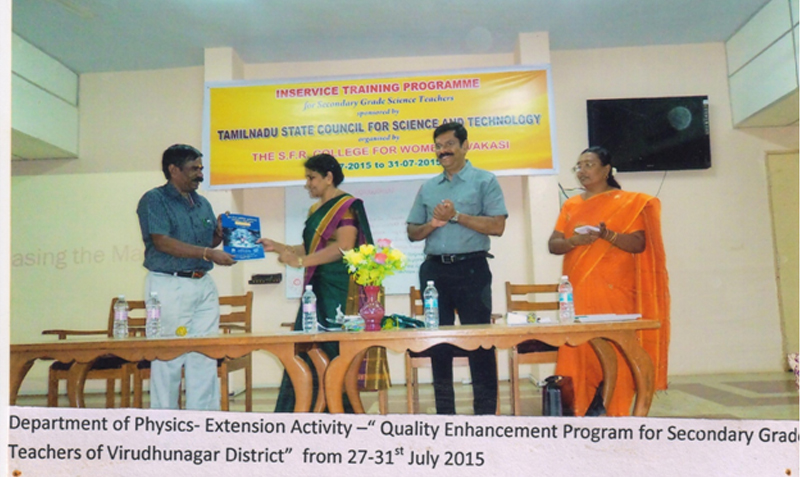
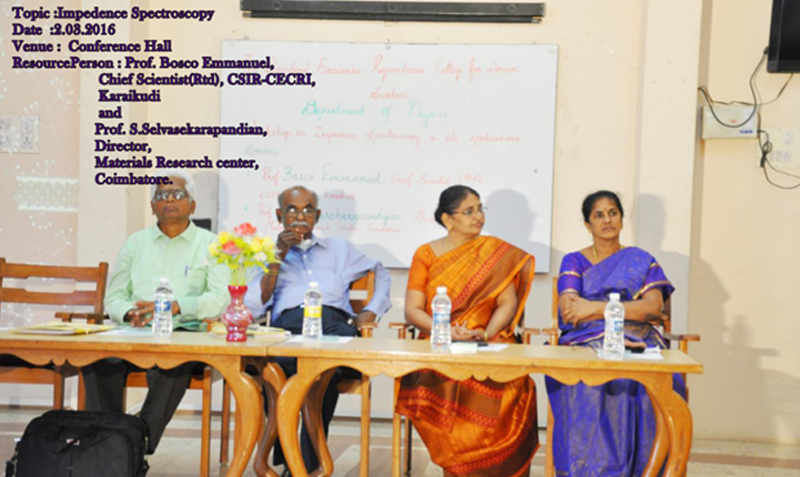
Staff Achievements
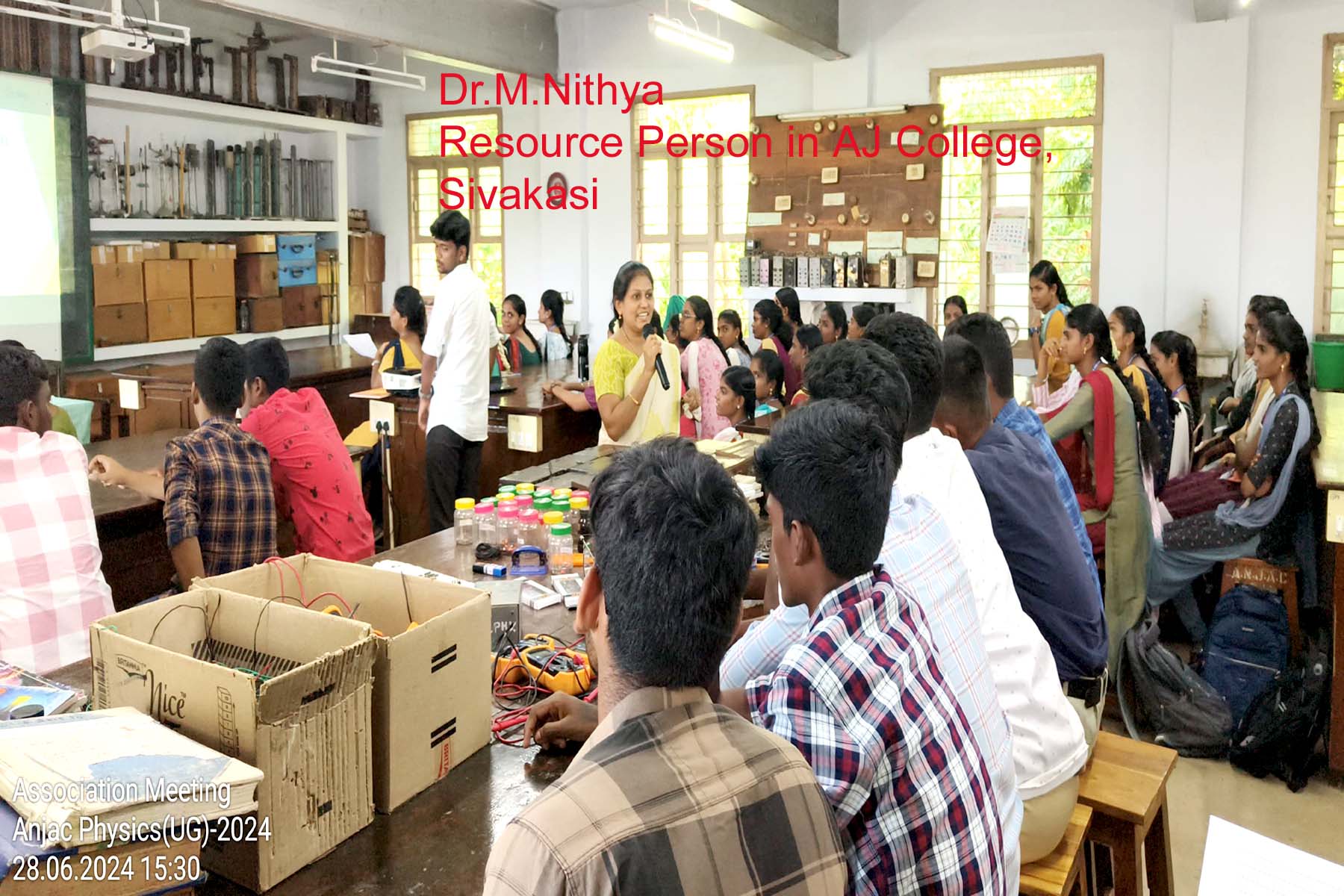
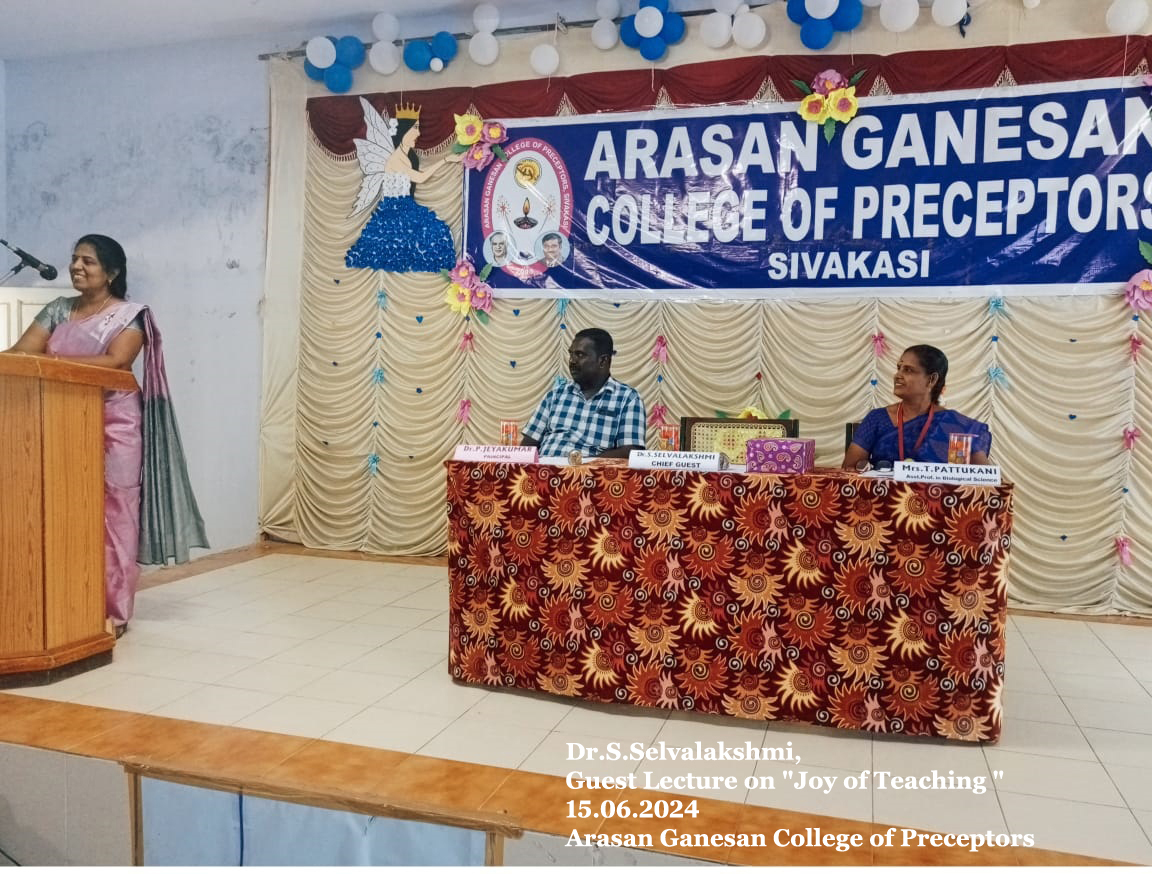
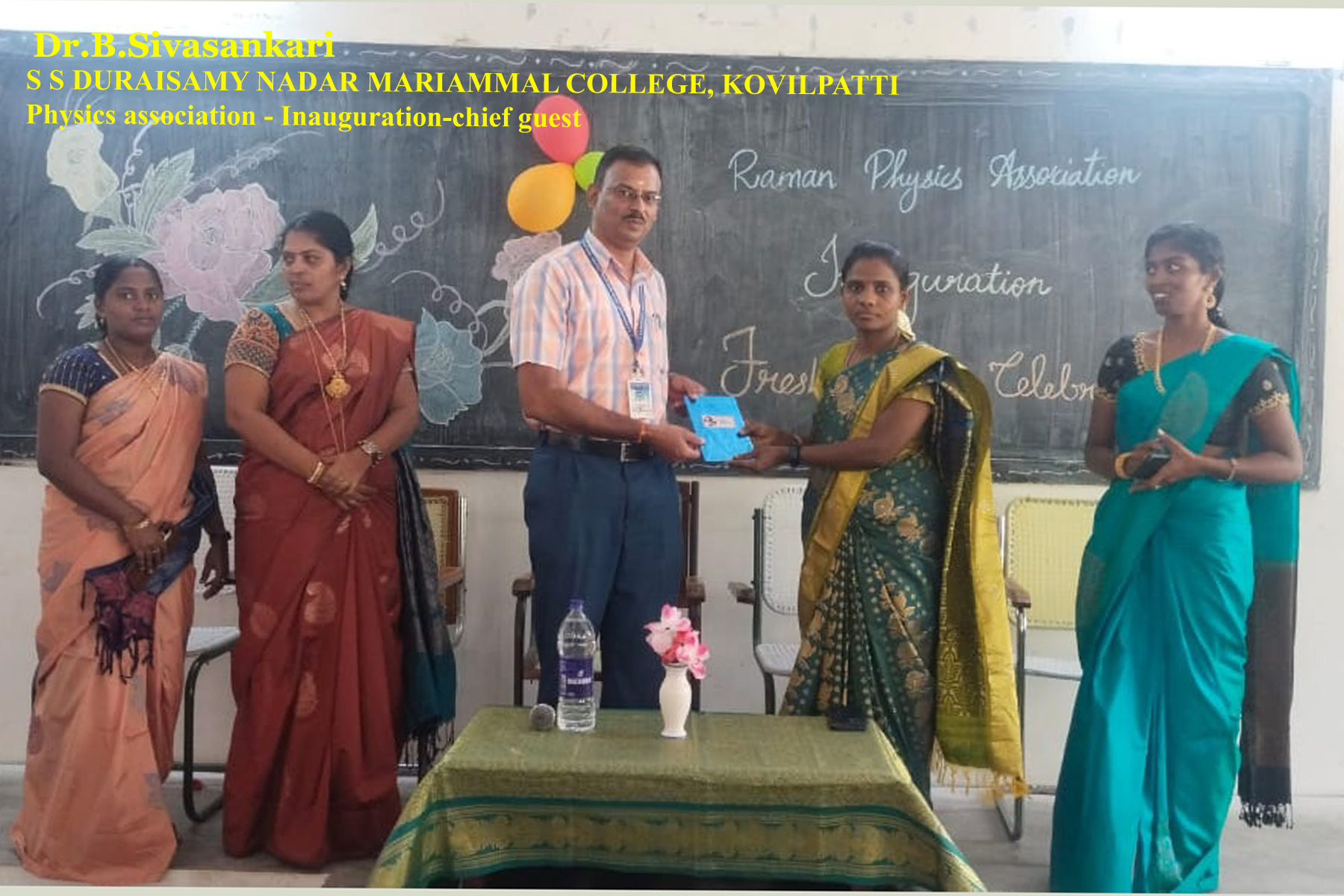
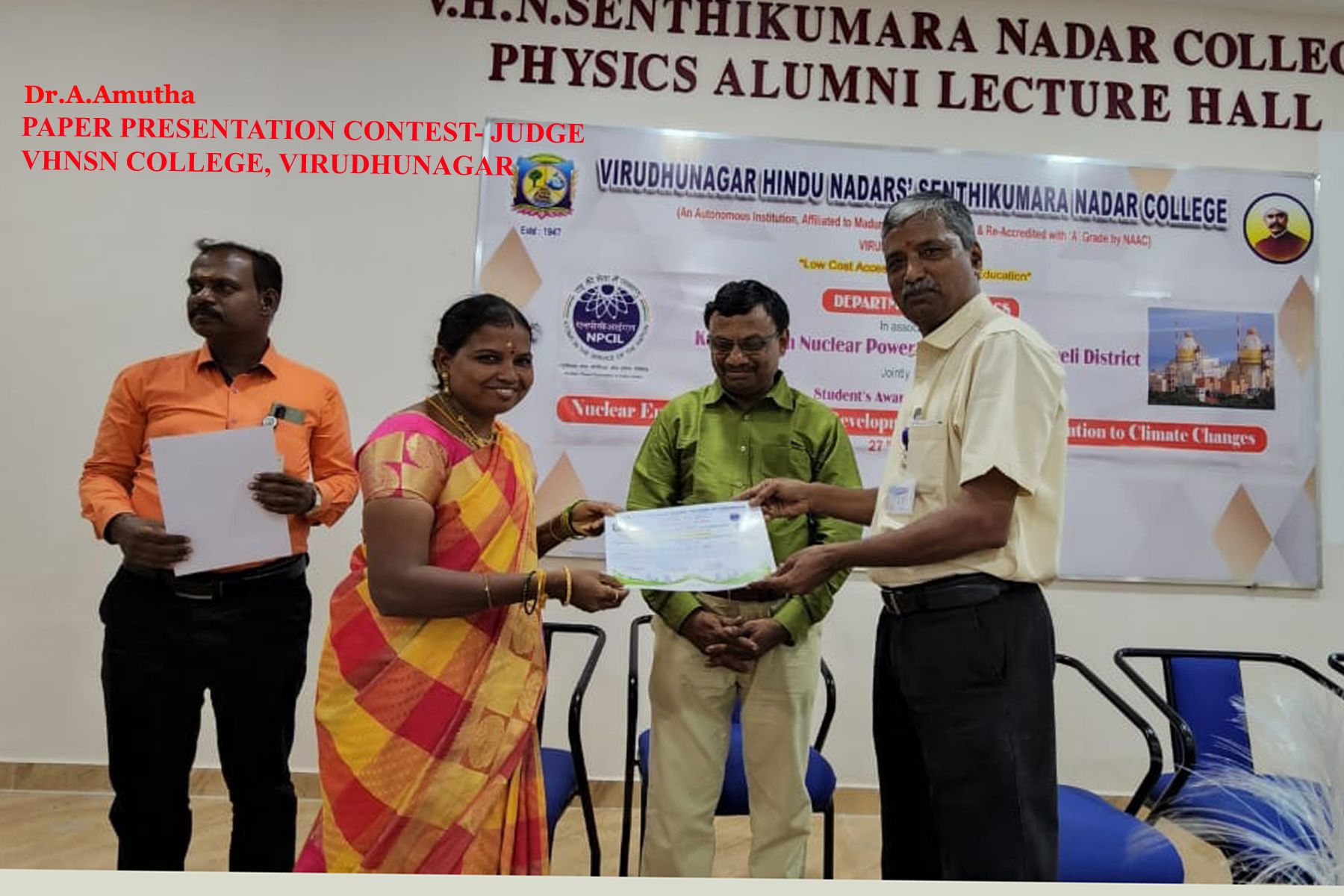
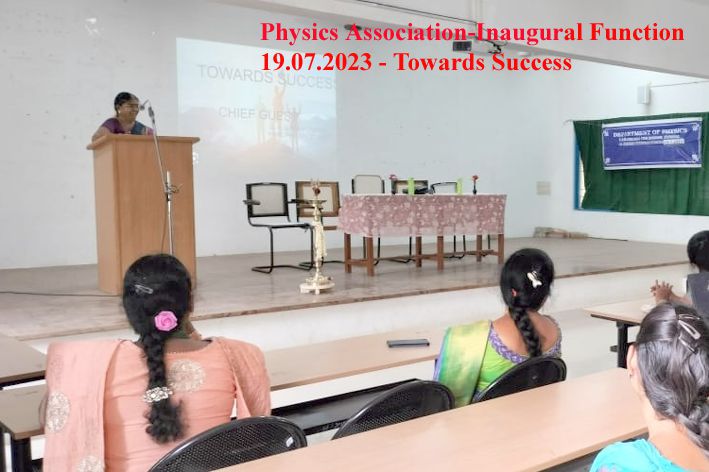
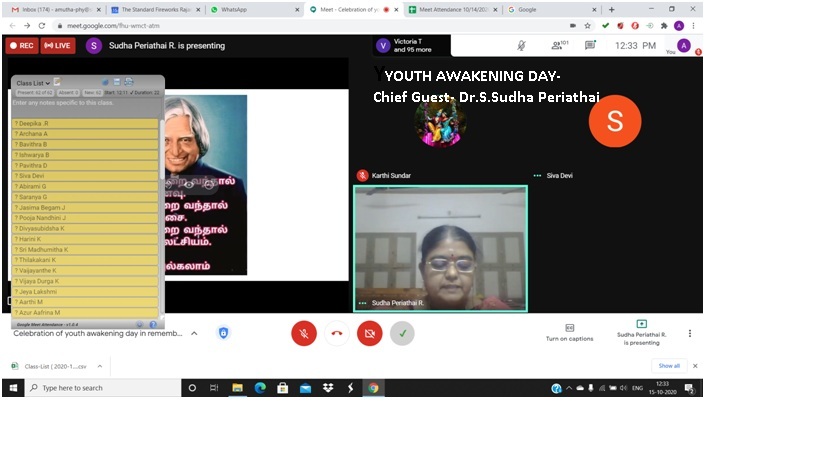
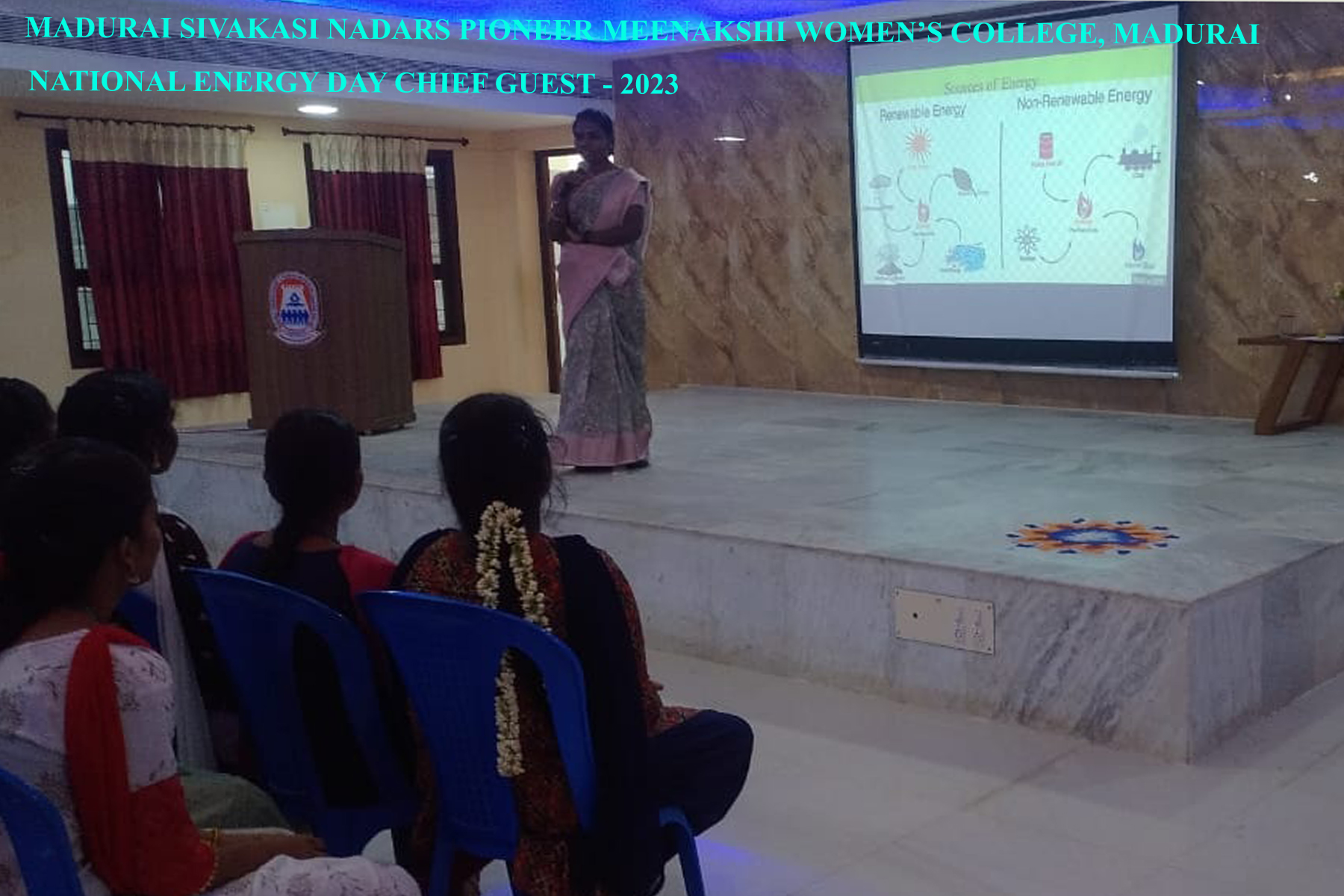
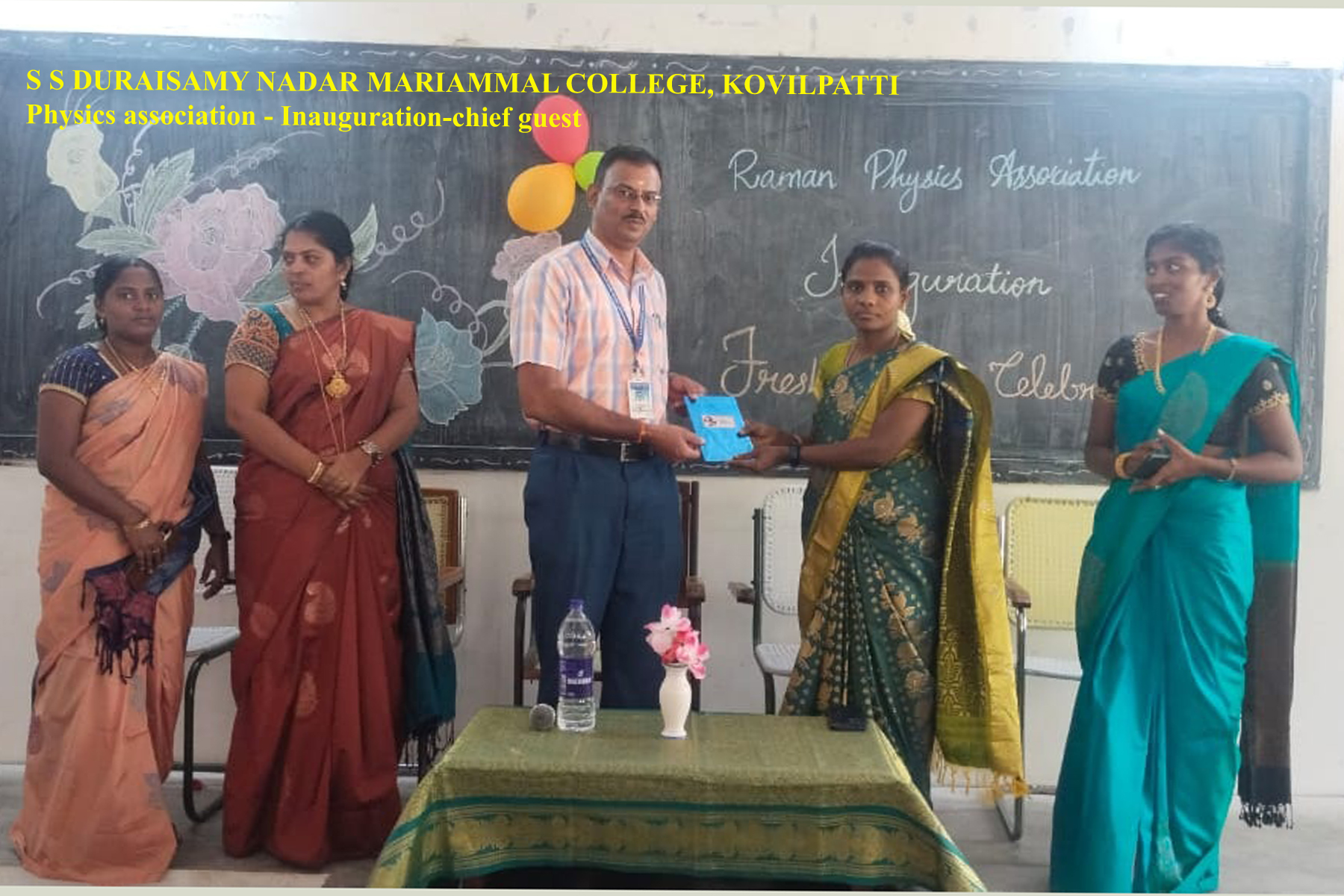
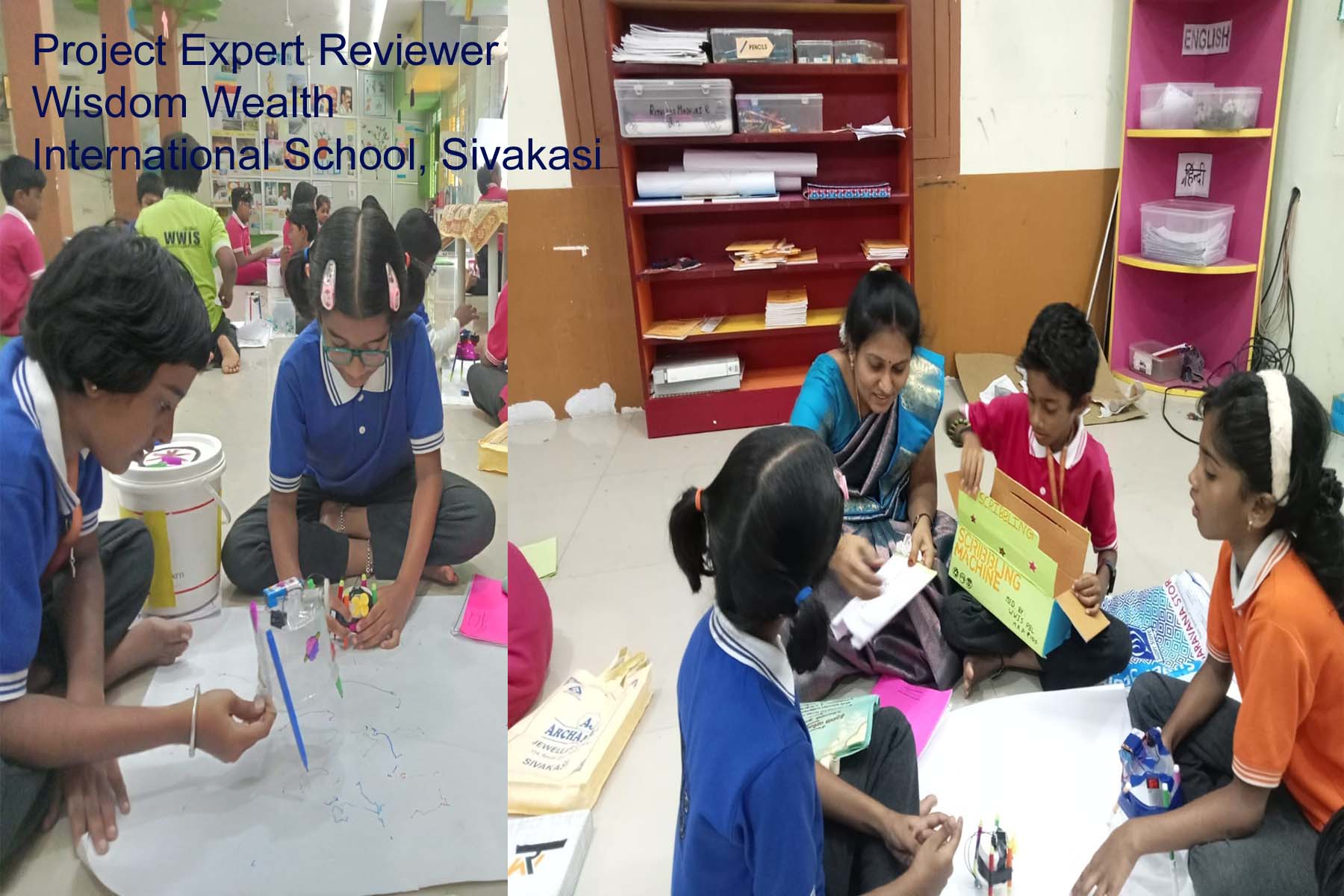
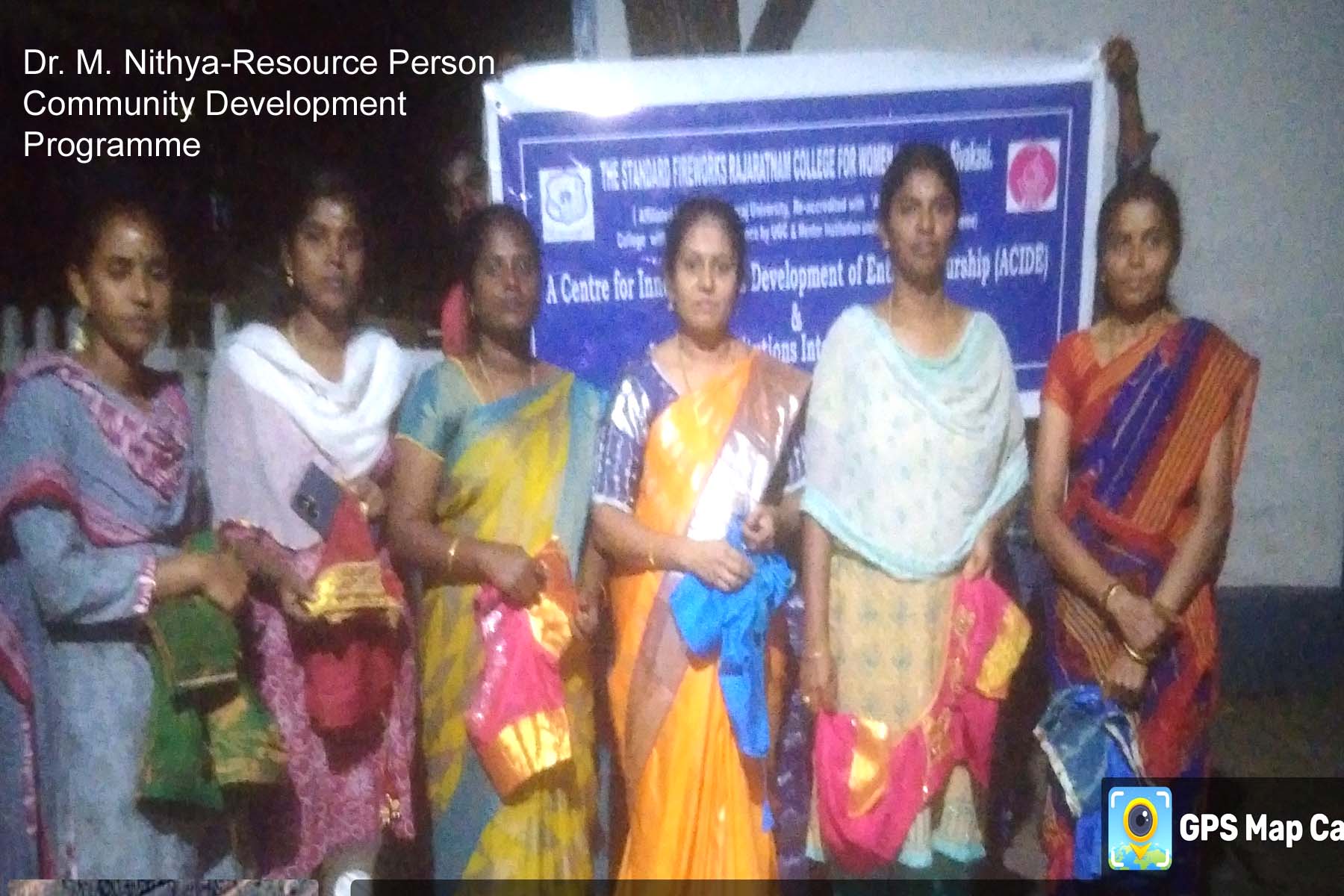
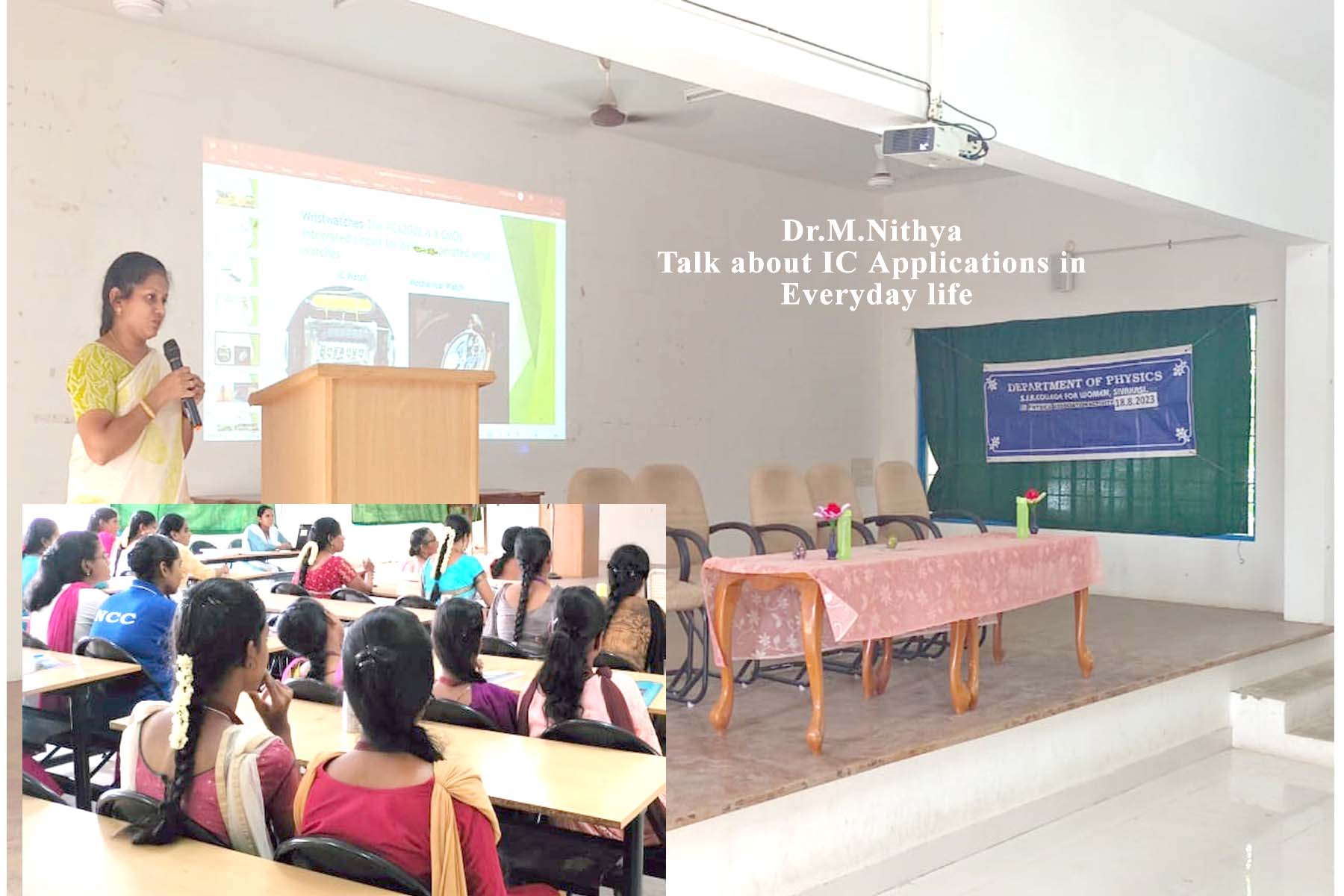
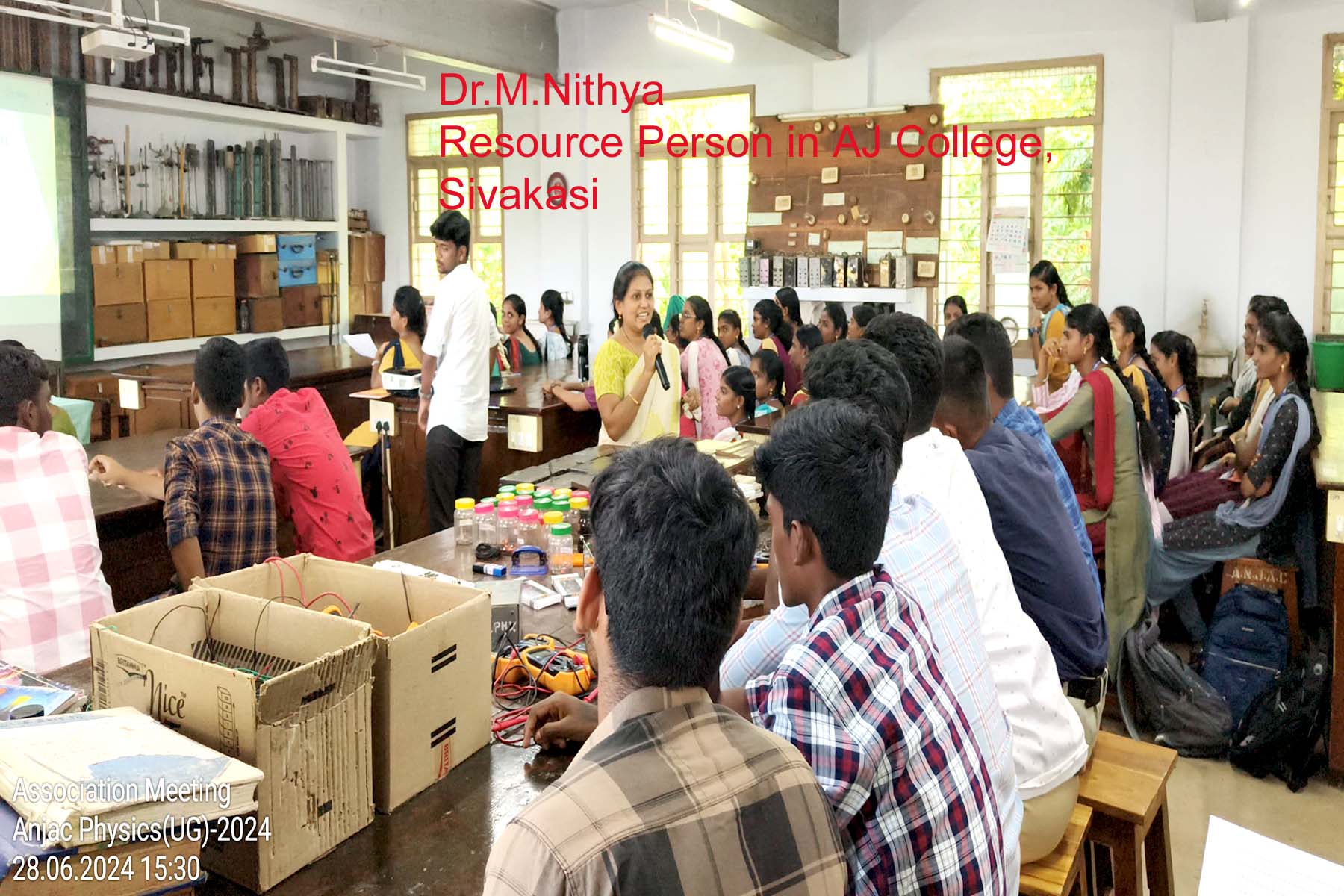
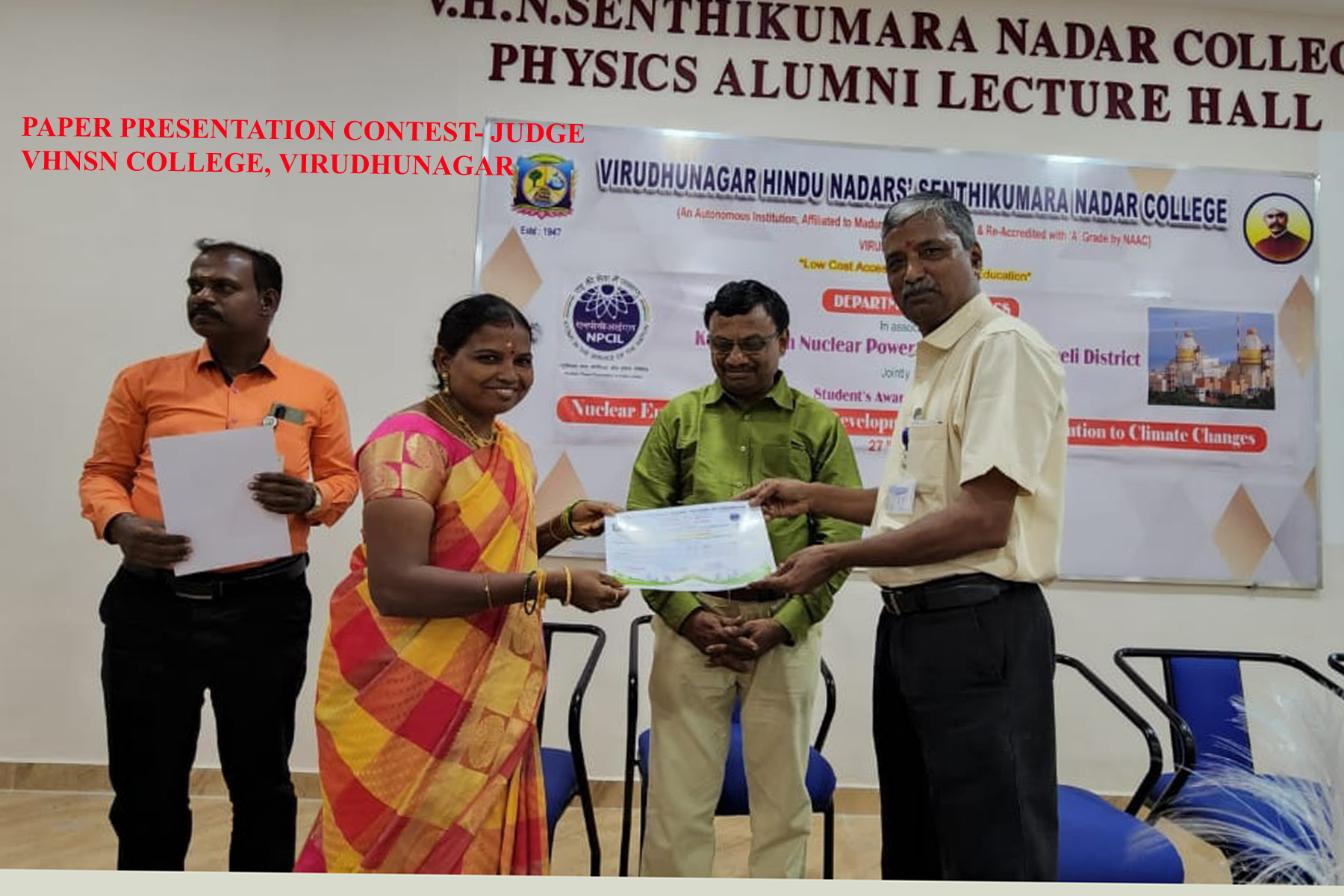
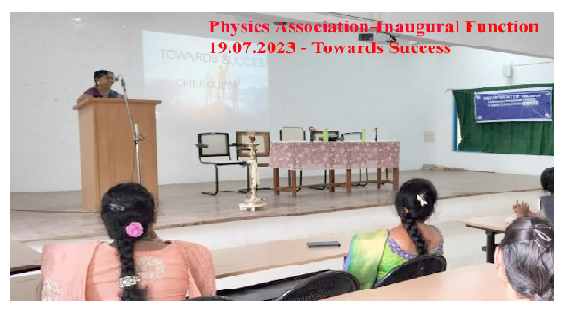
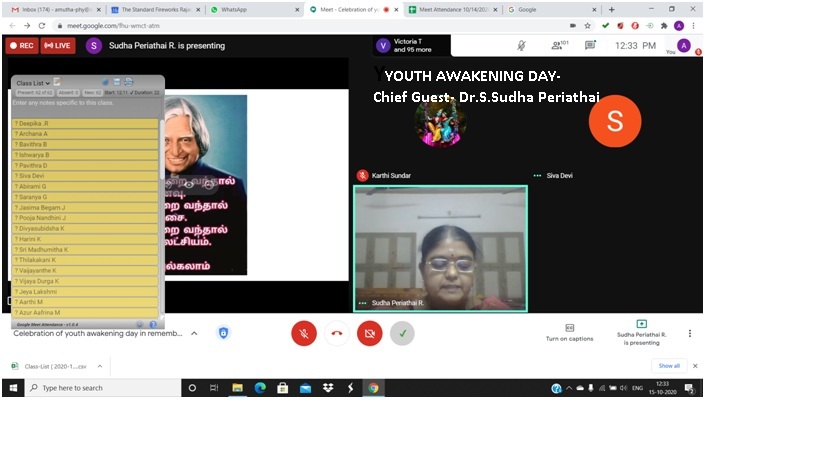
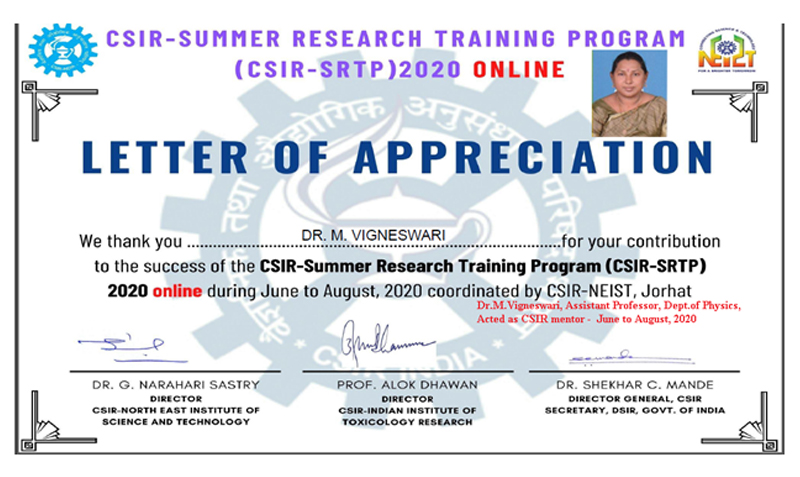
.
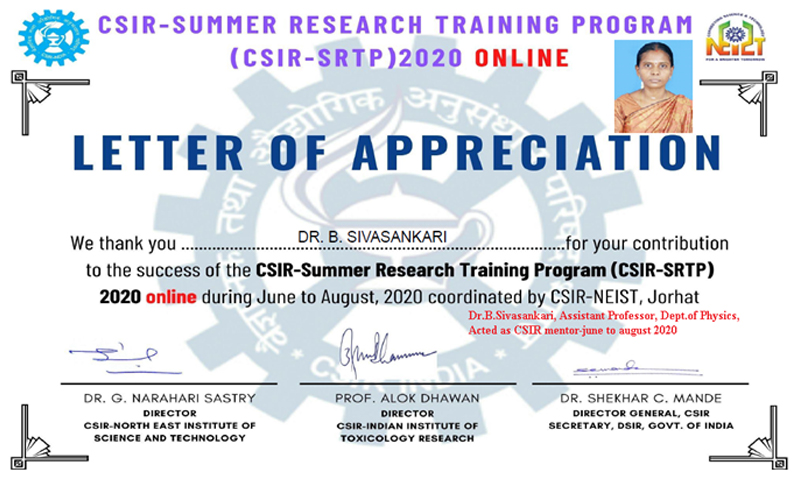
.
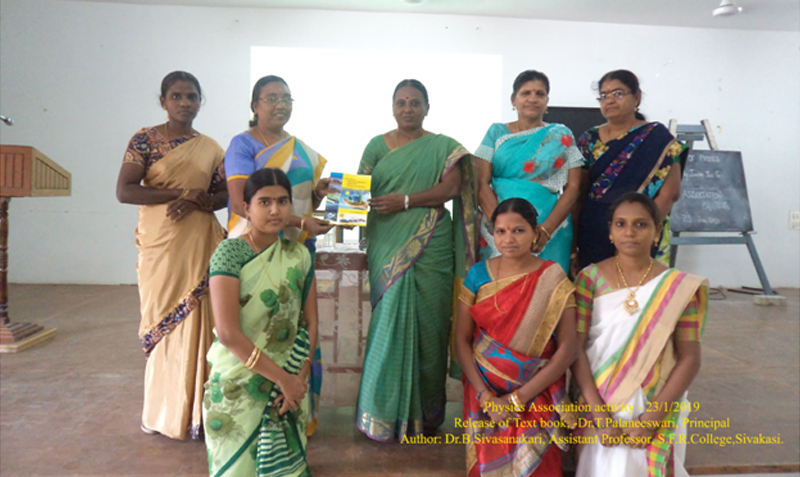
.
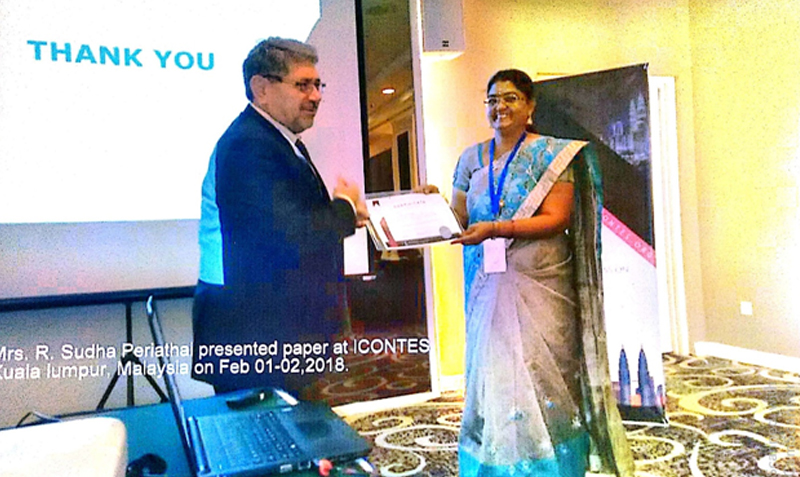
.
Student Achievements
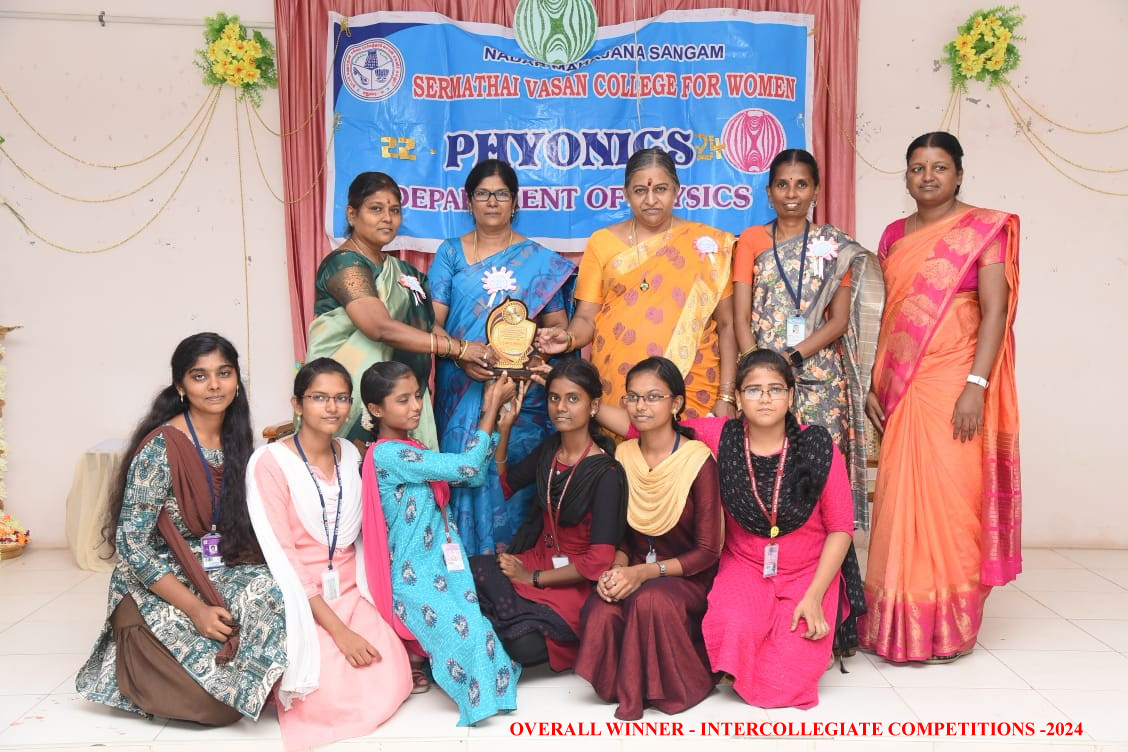
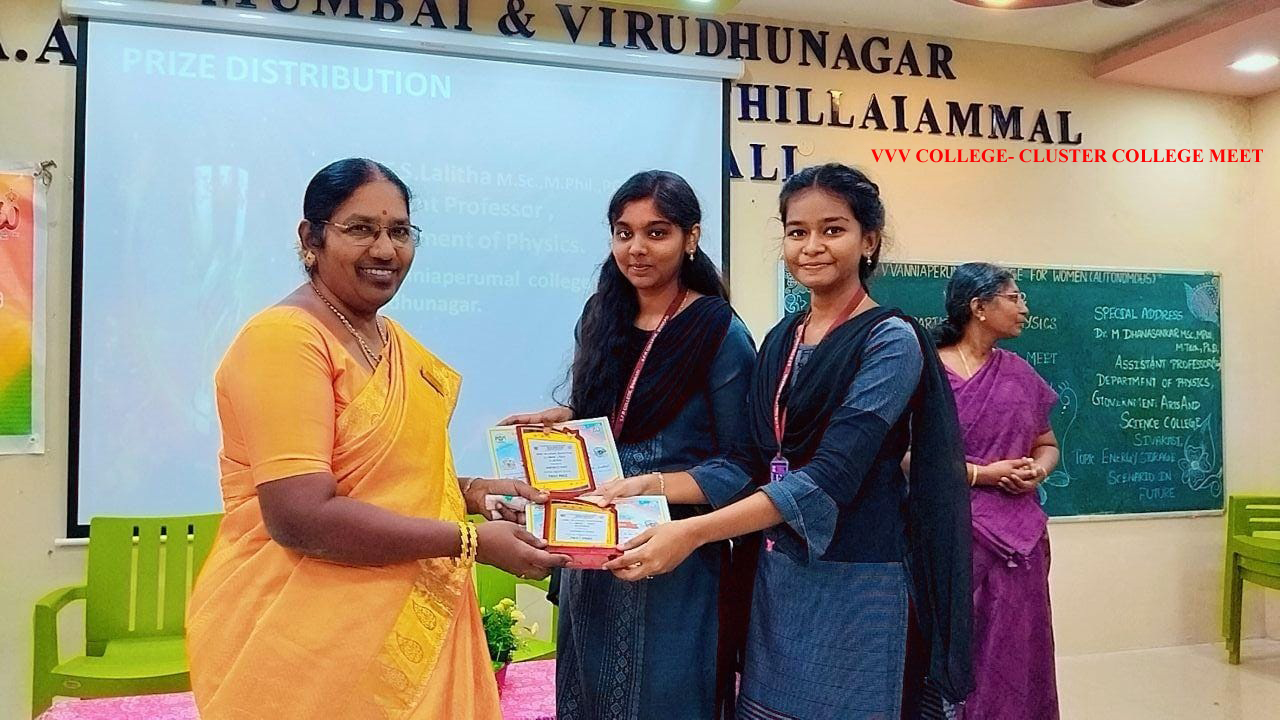
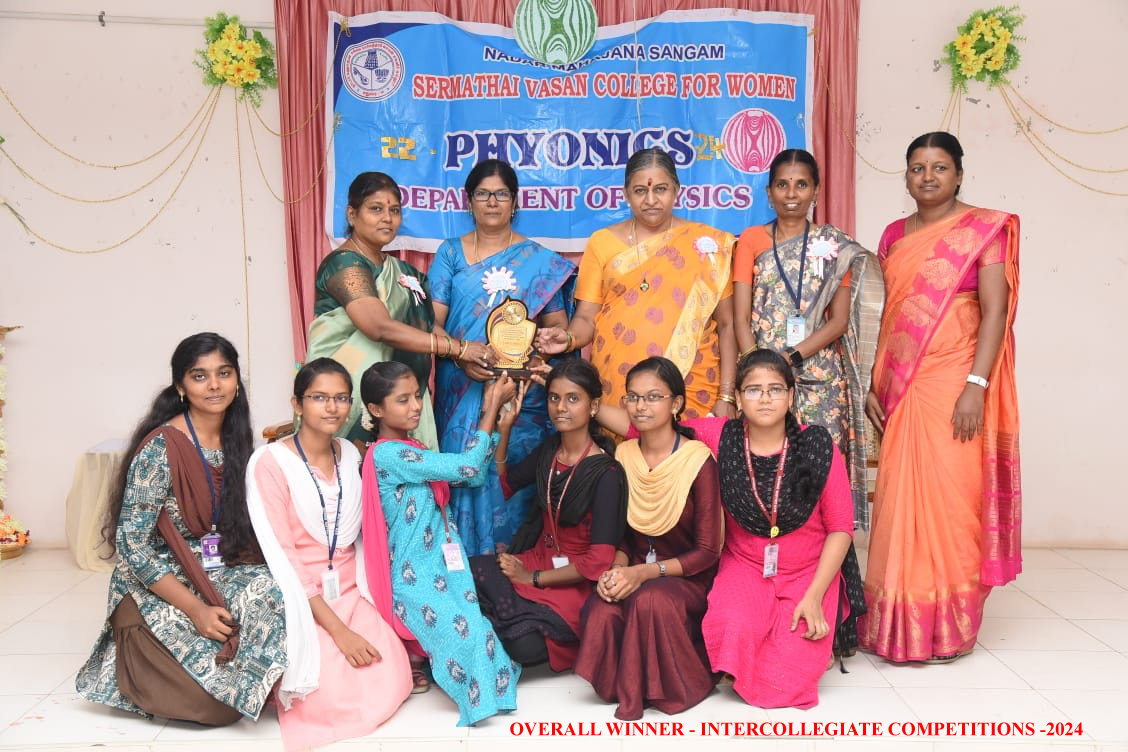
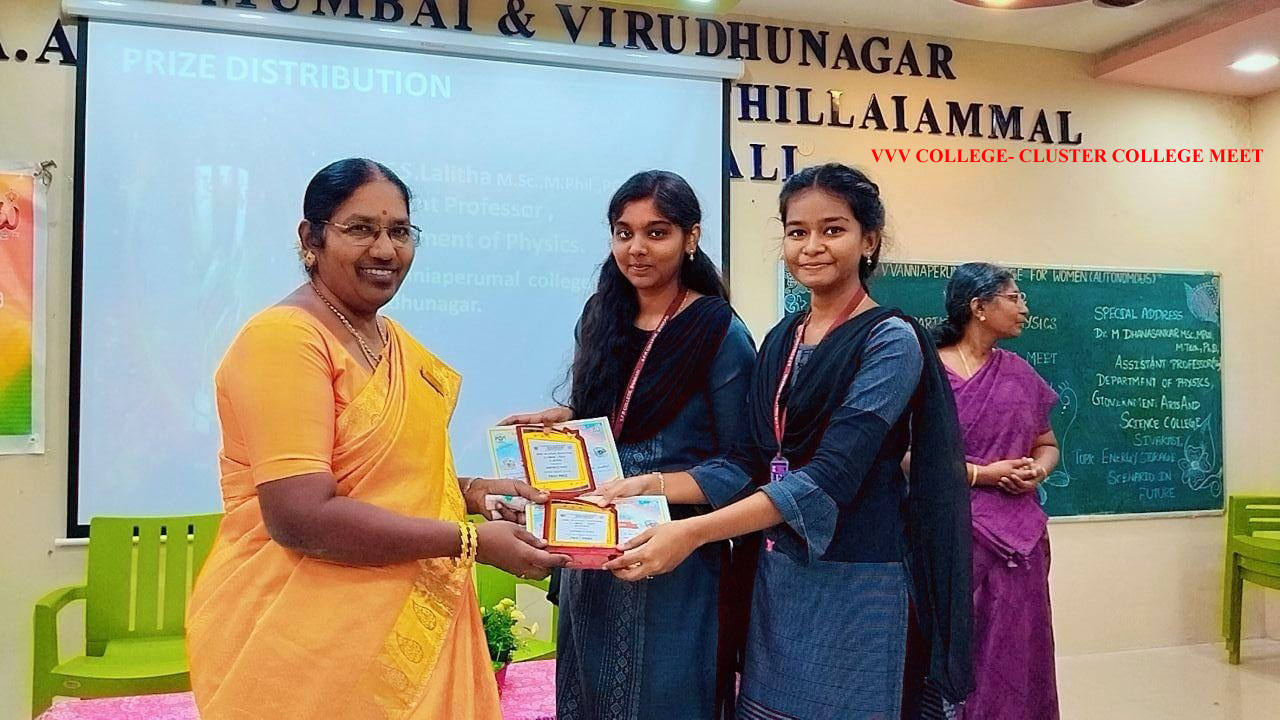
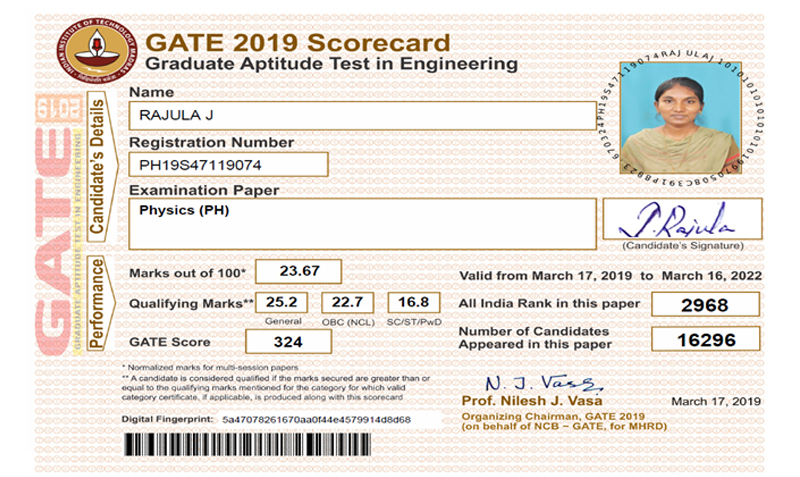
.
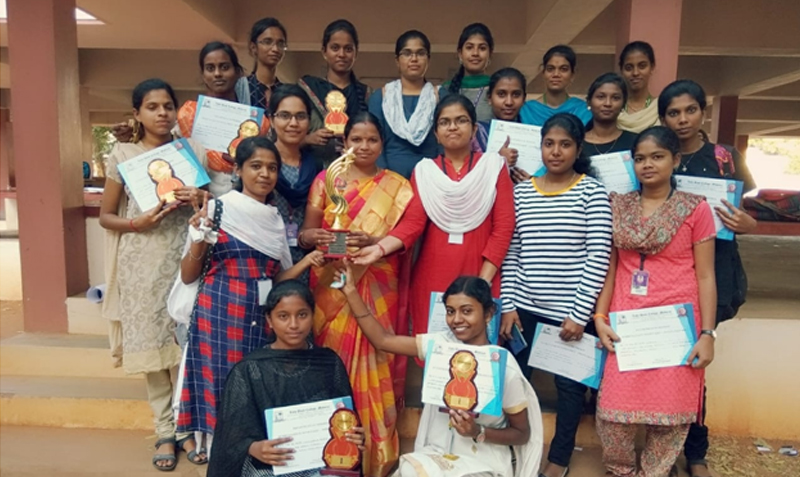
.
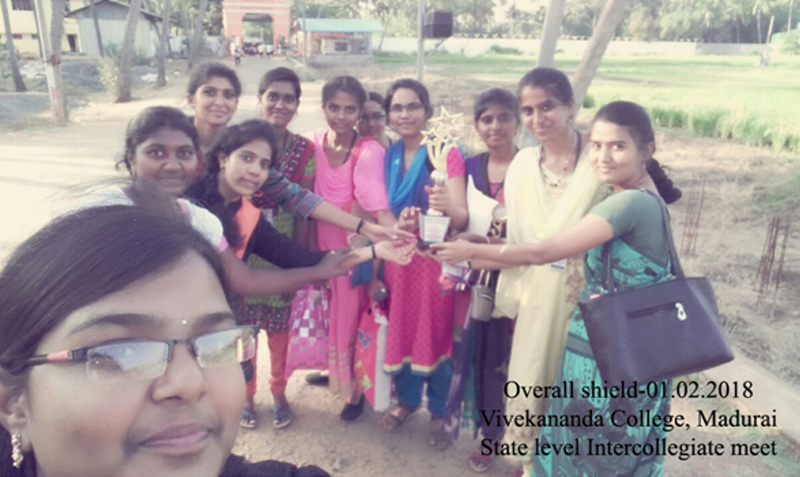
.
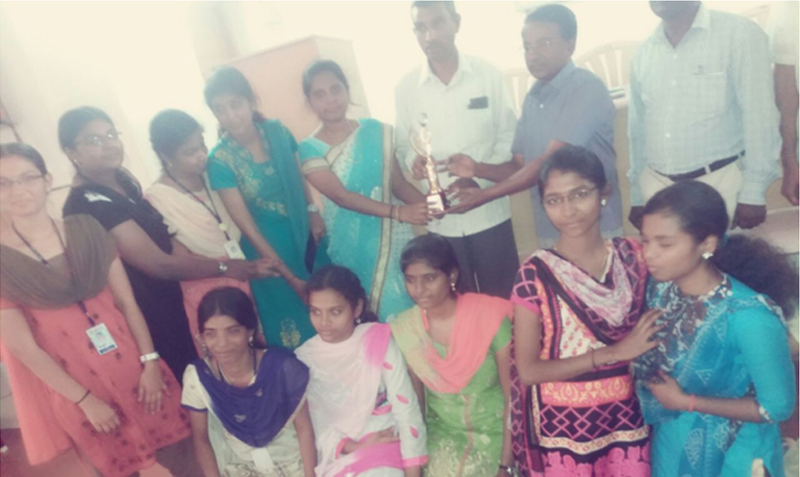
.
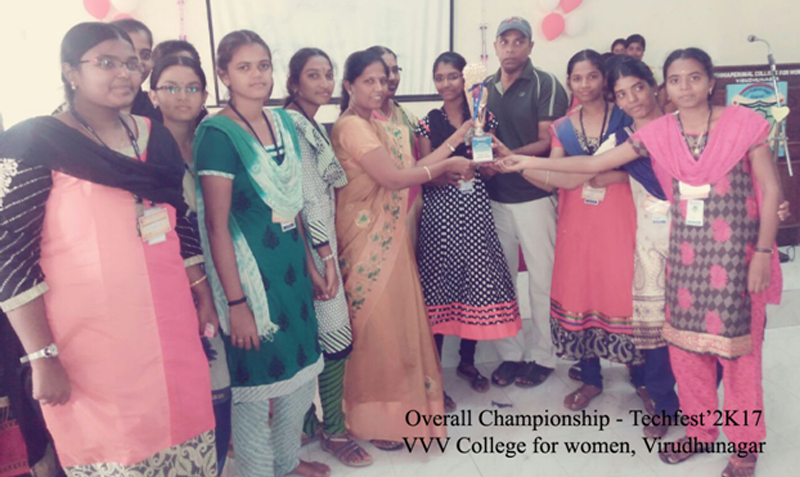
.
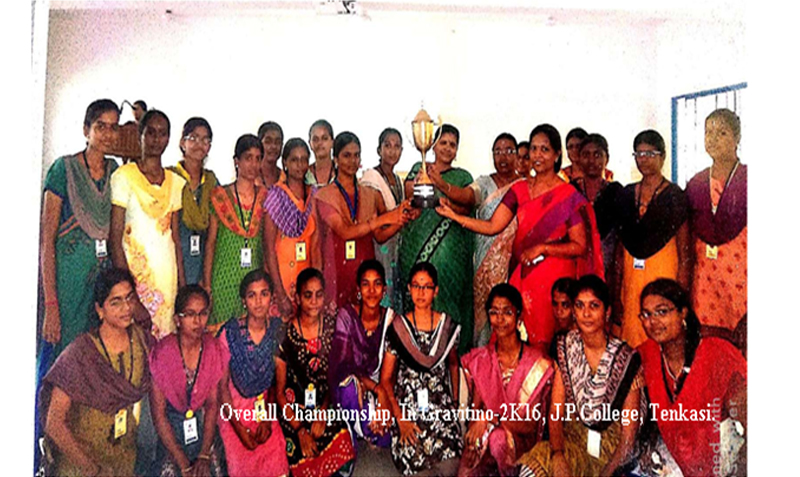
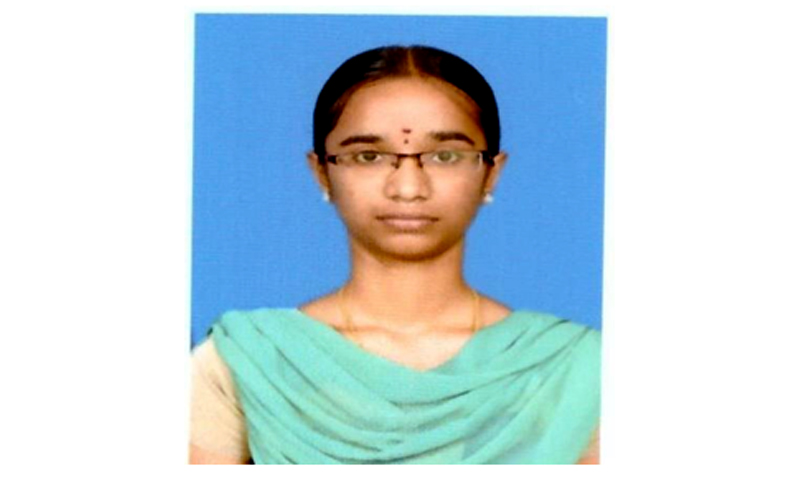
Ms. J. Divyavalli – Best Outgoing student and Students Union Secretary – 2019 to 2020
Contact Us
Thiruthangal Road , Sivakasi - 626123 , Tamil Nadu , India
Telephone Number
+91 4562-220389 FAX Number
+91 4562-226695 Email ID
sfrc@sfrcollege.edu.in
